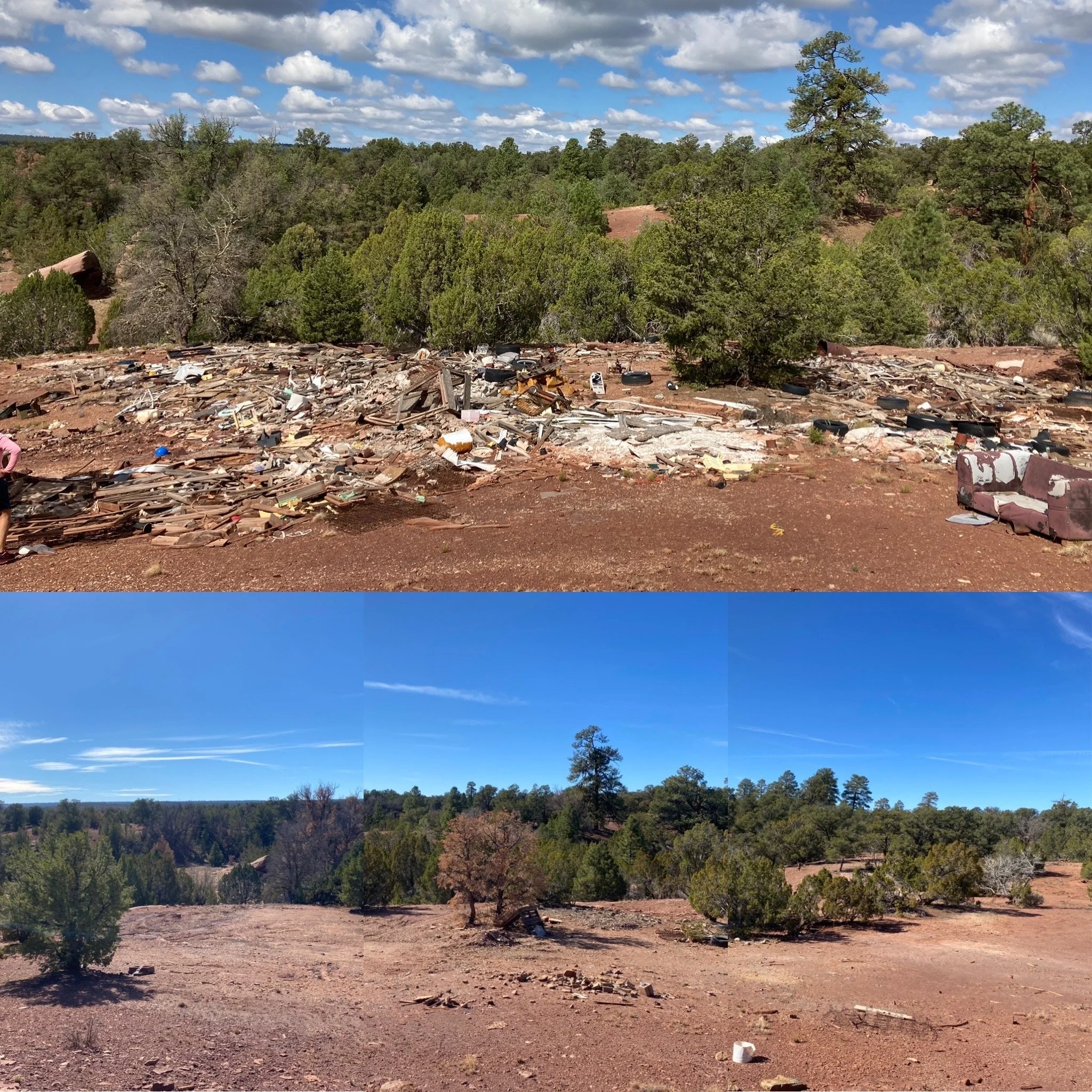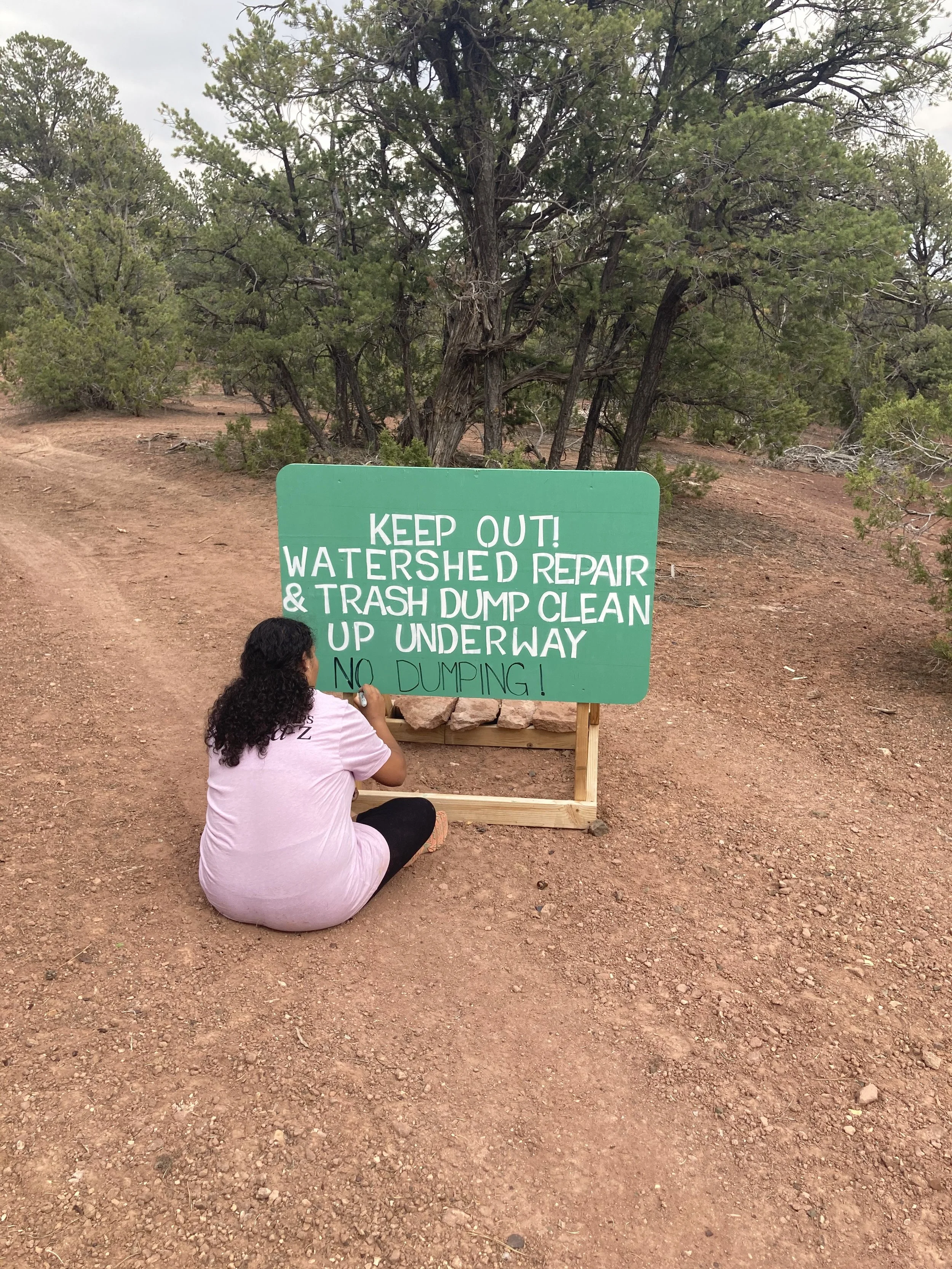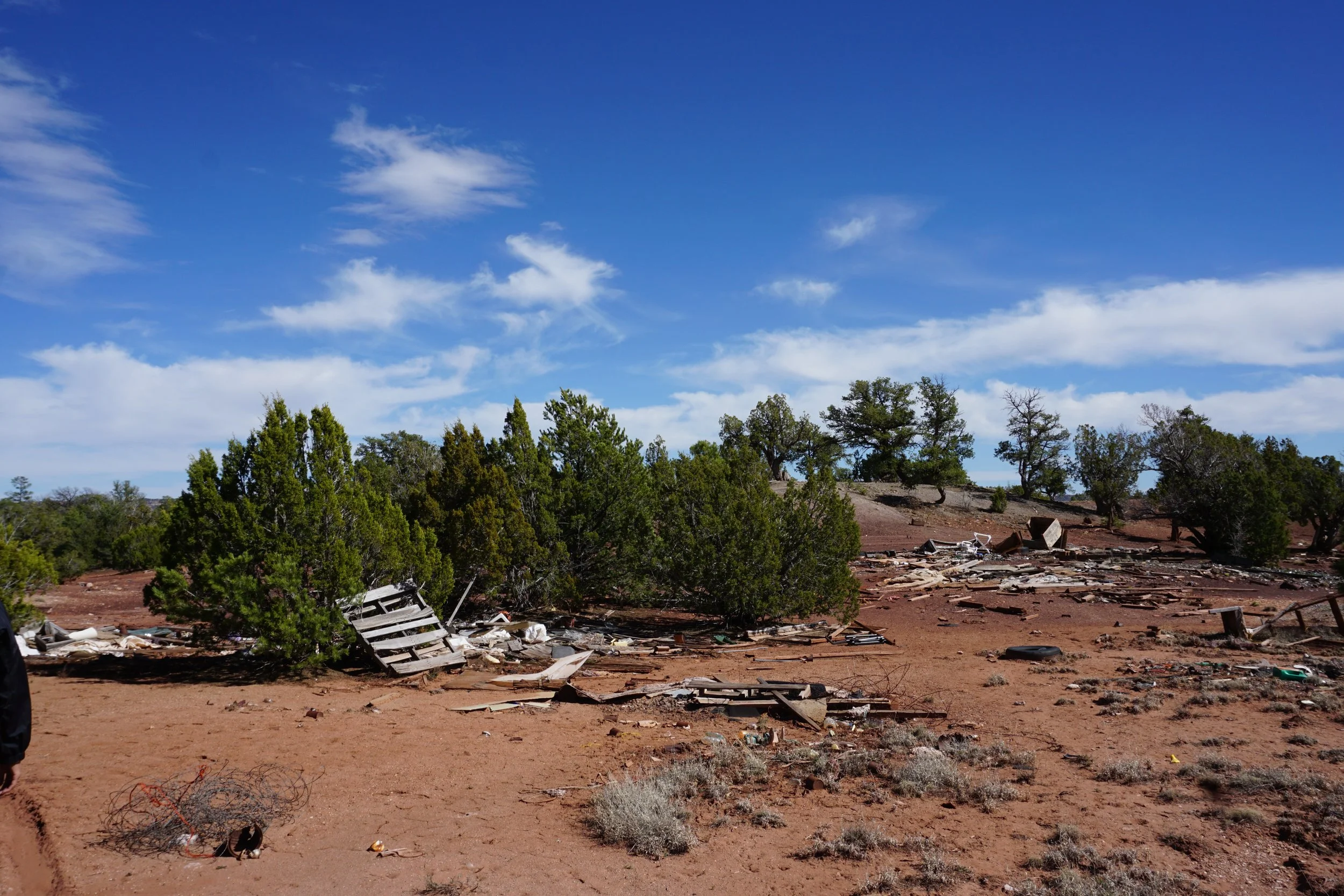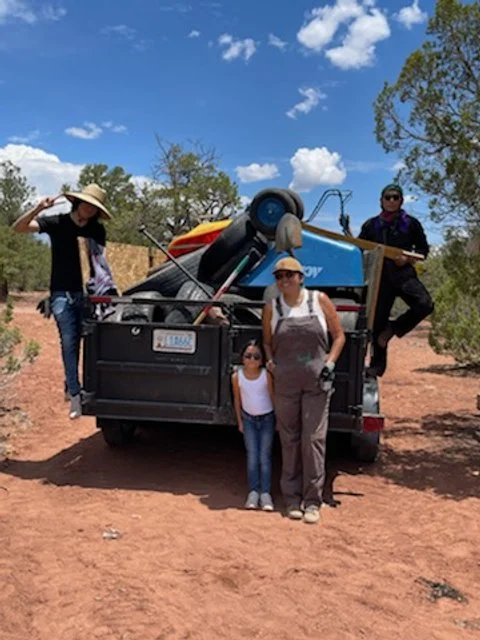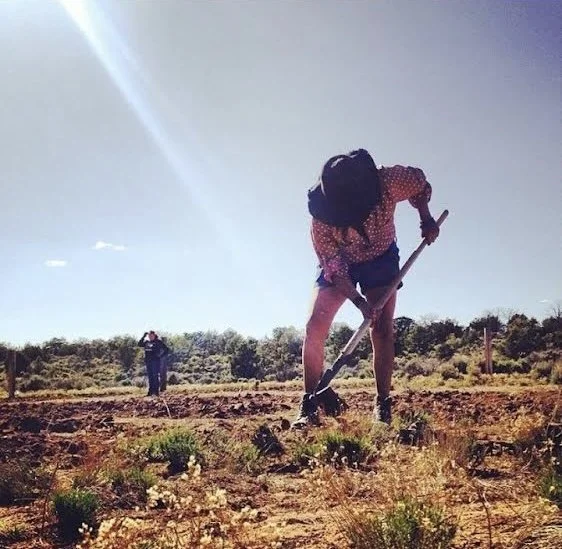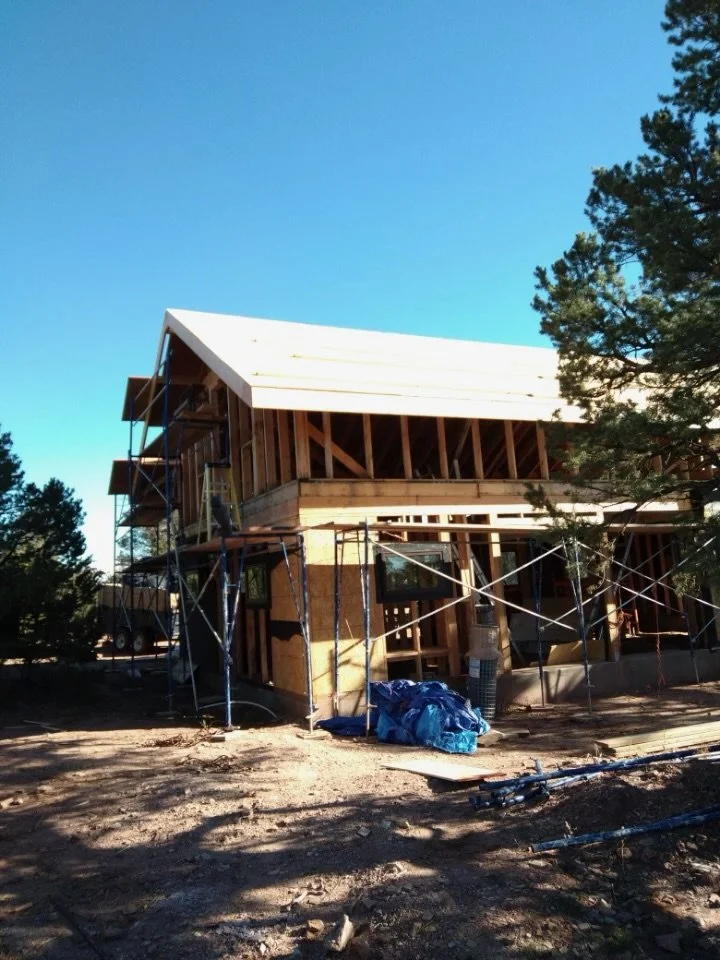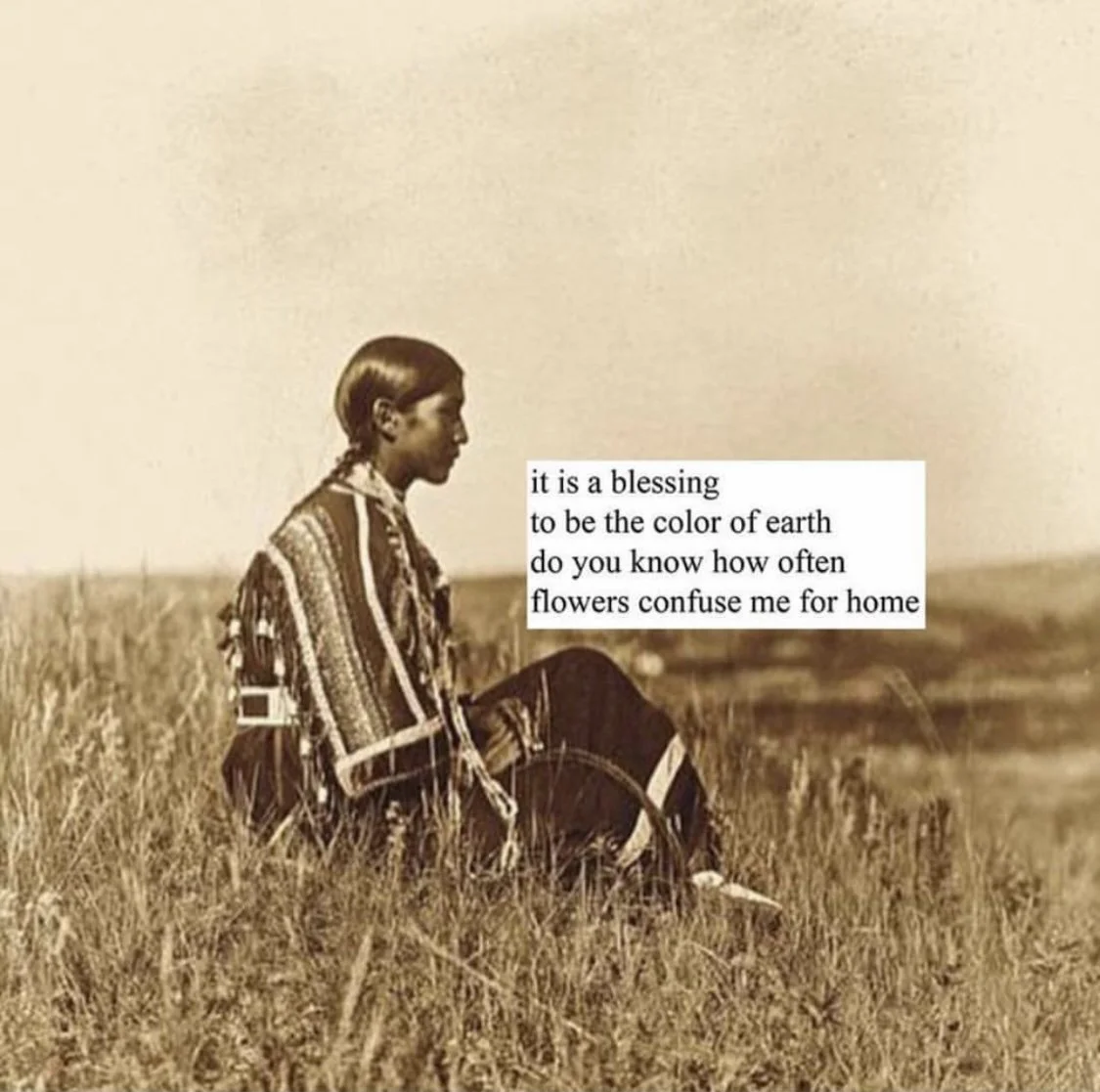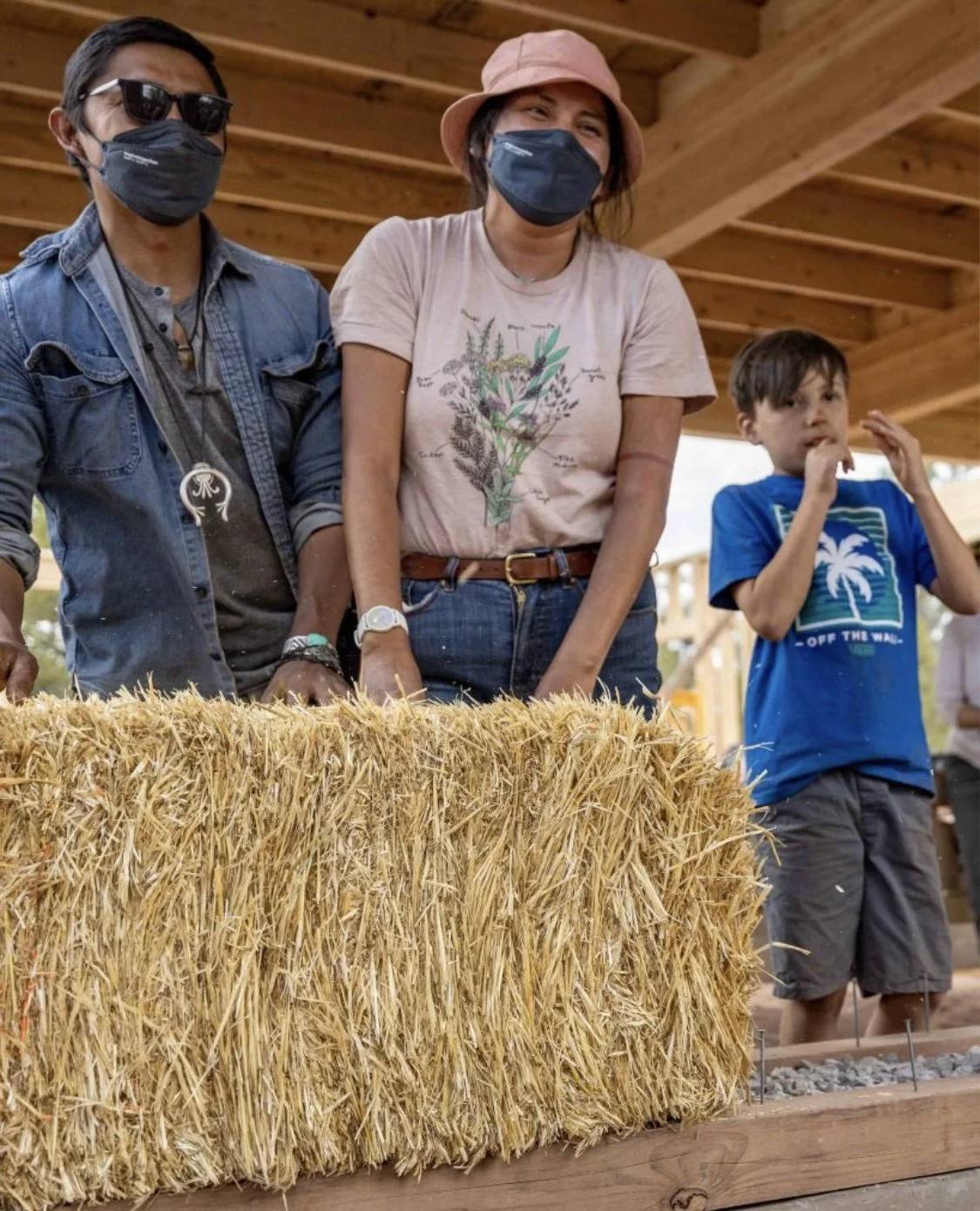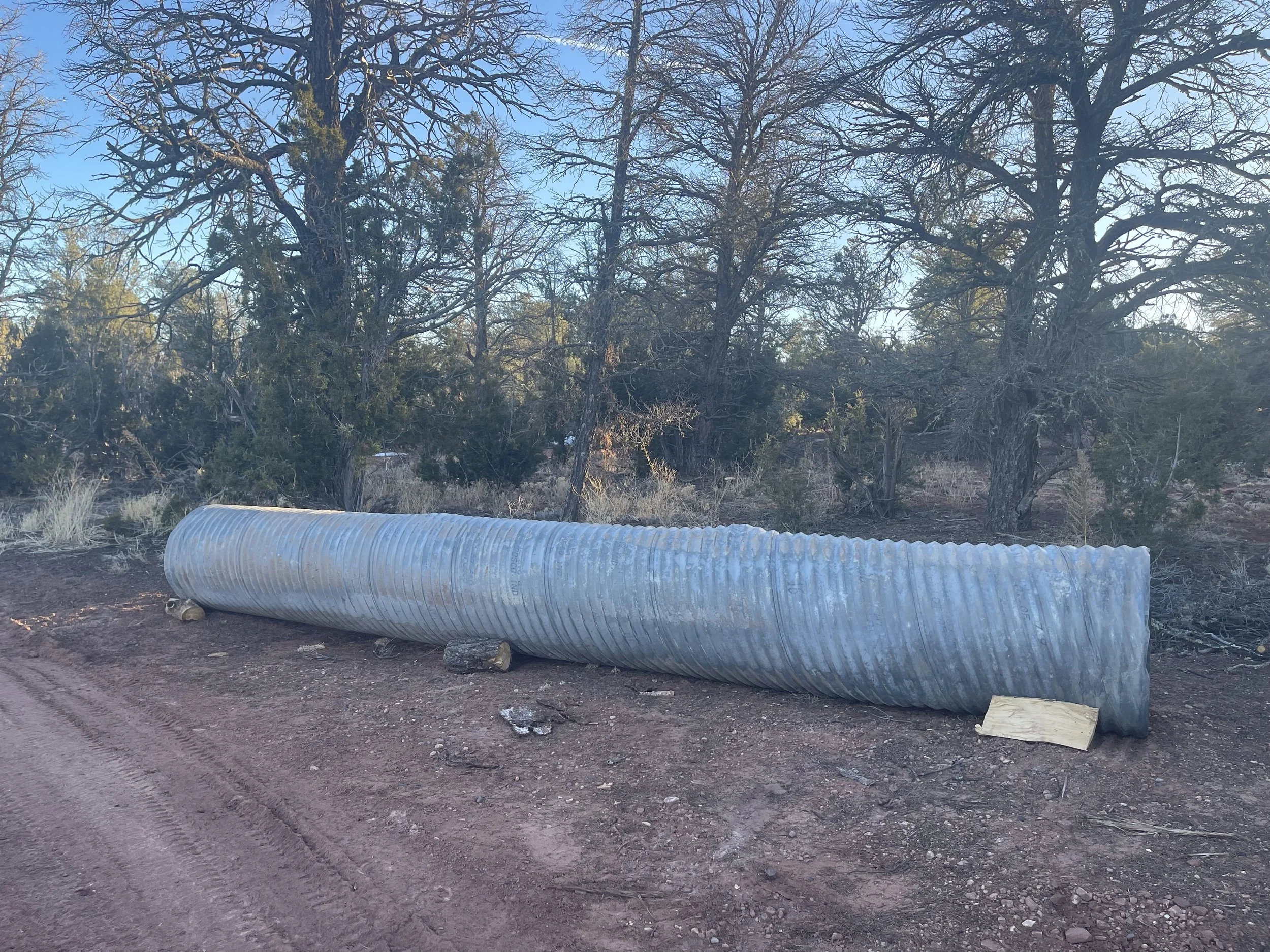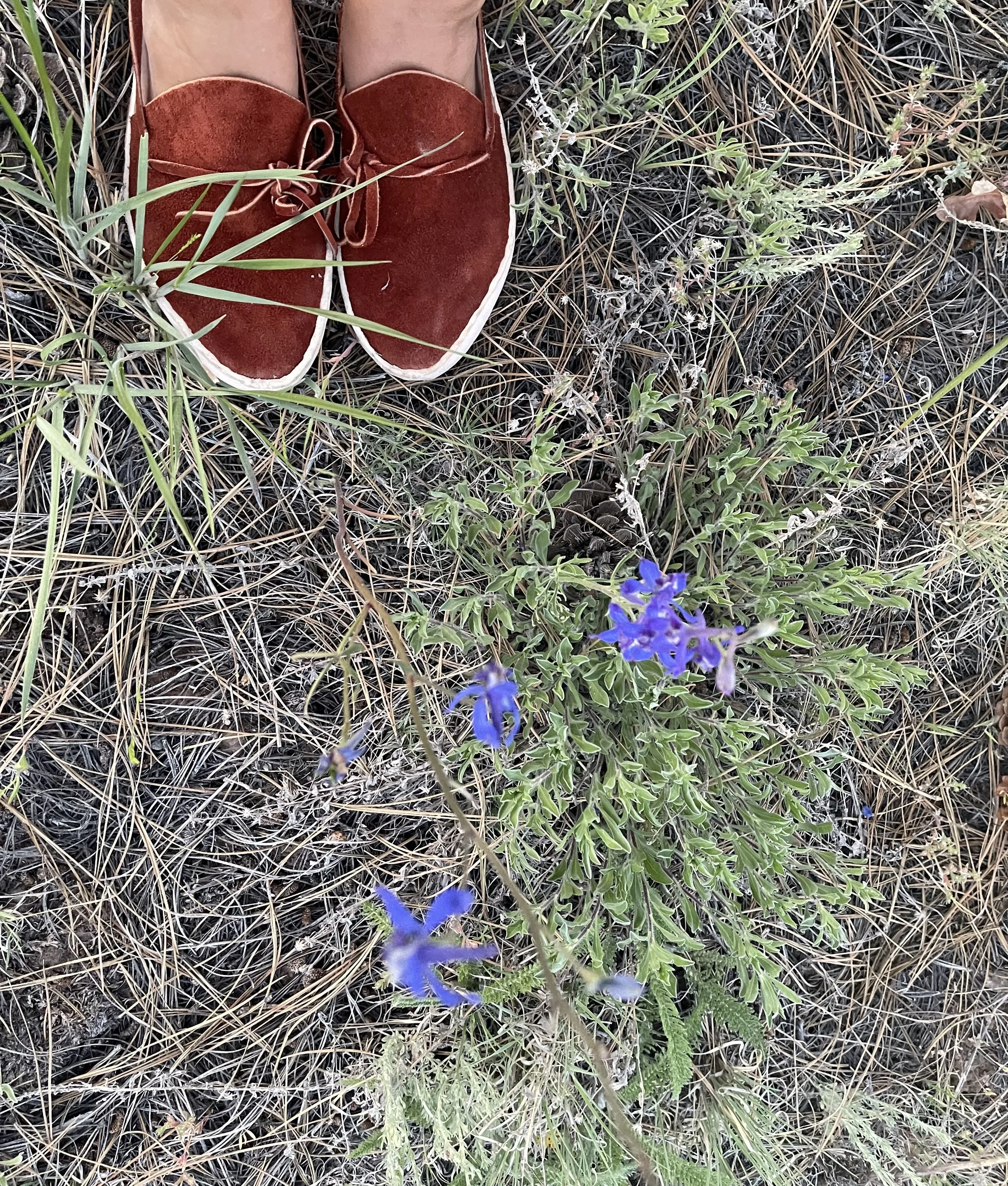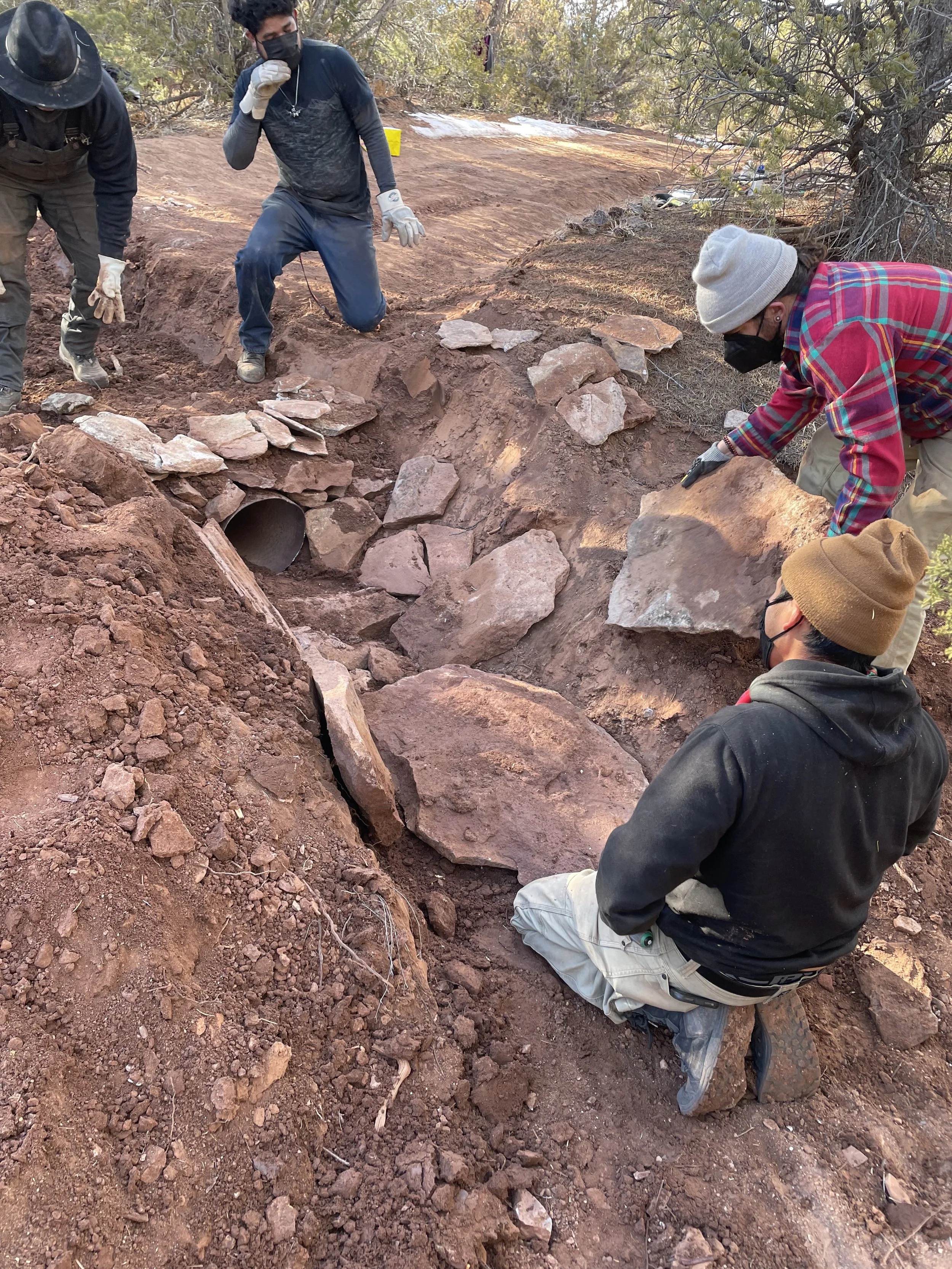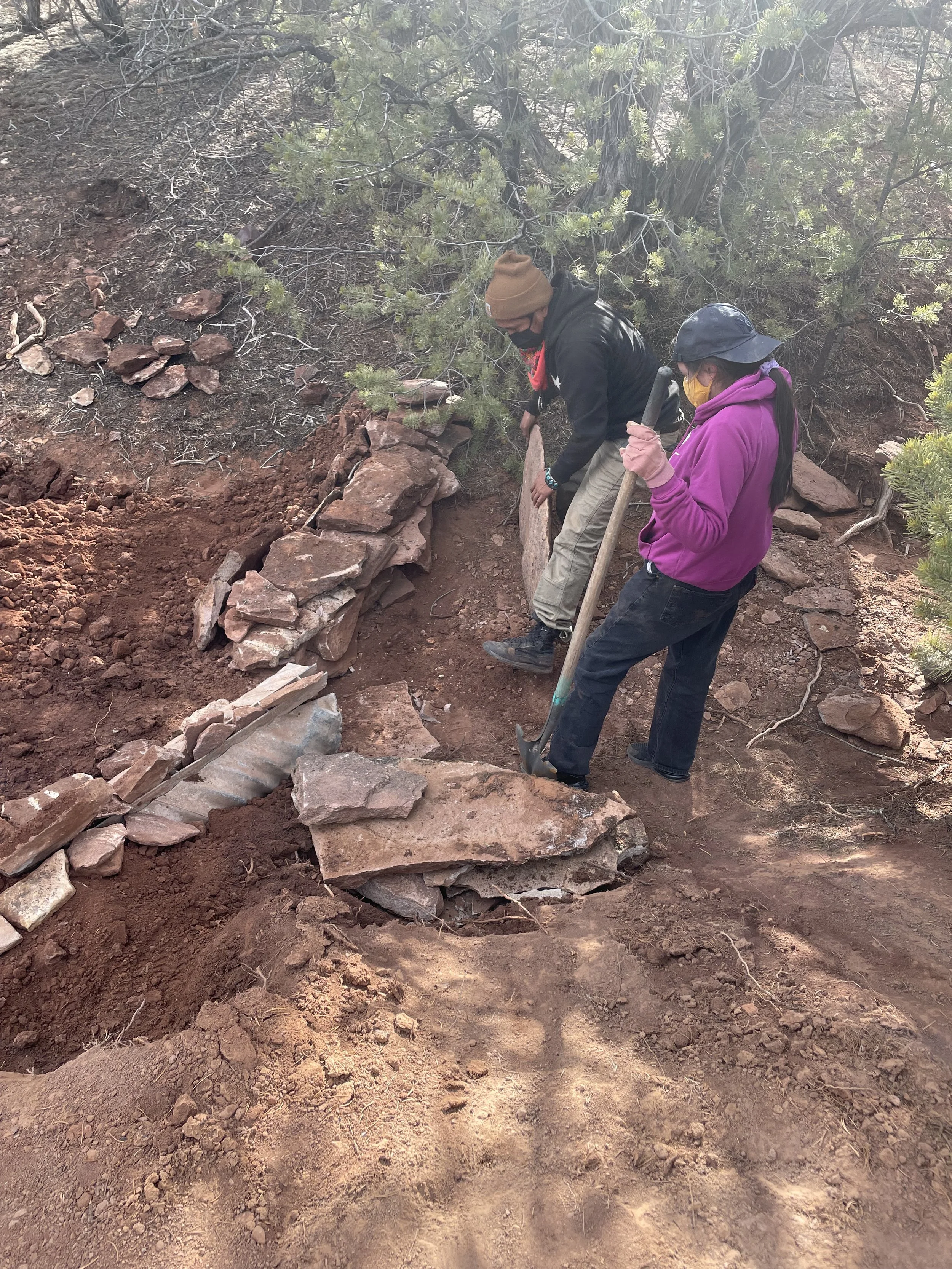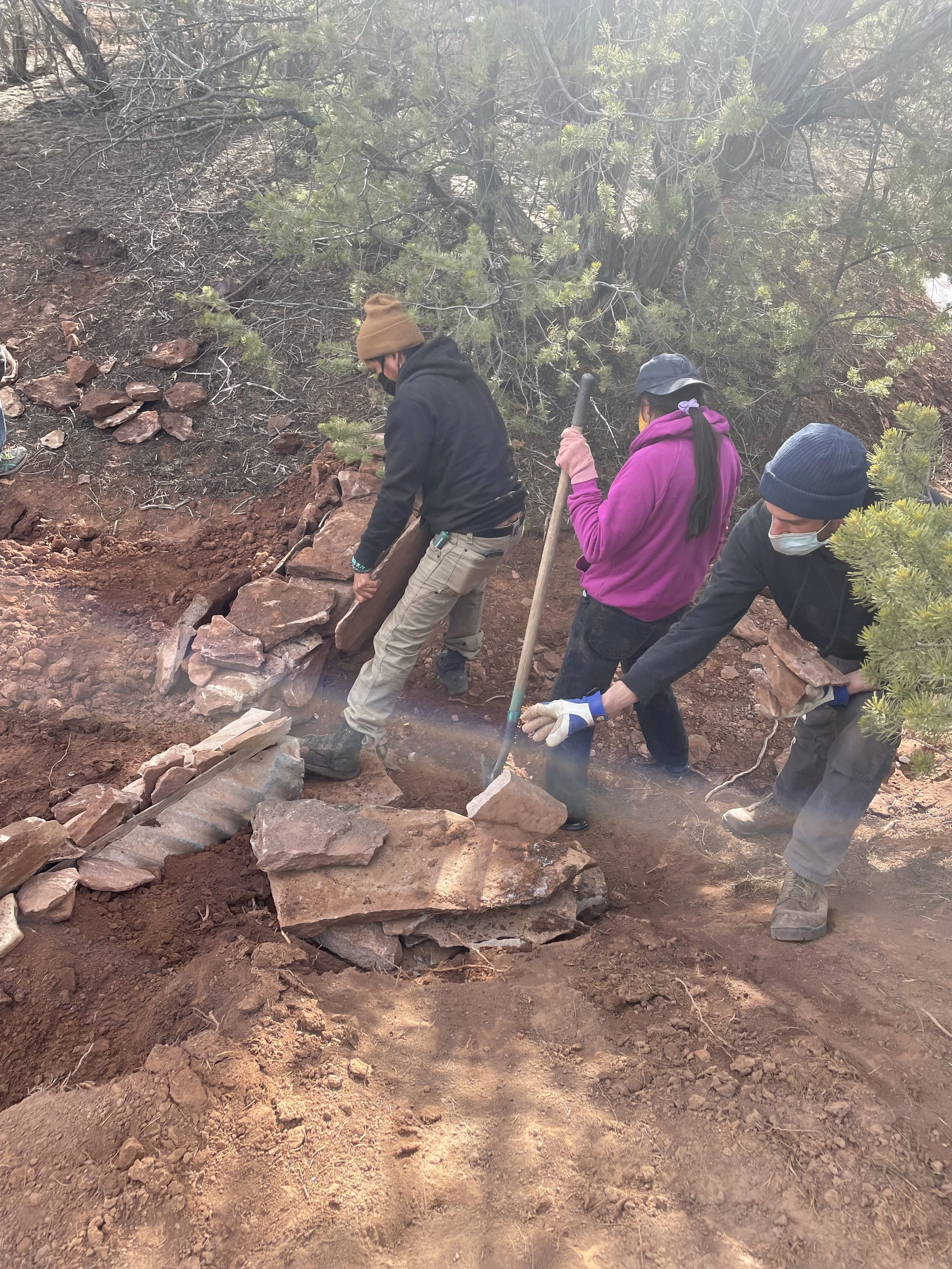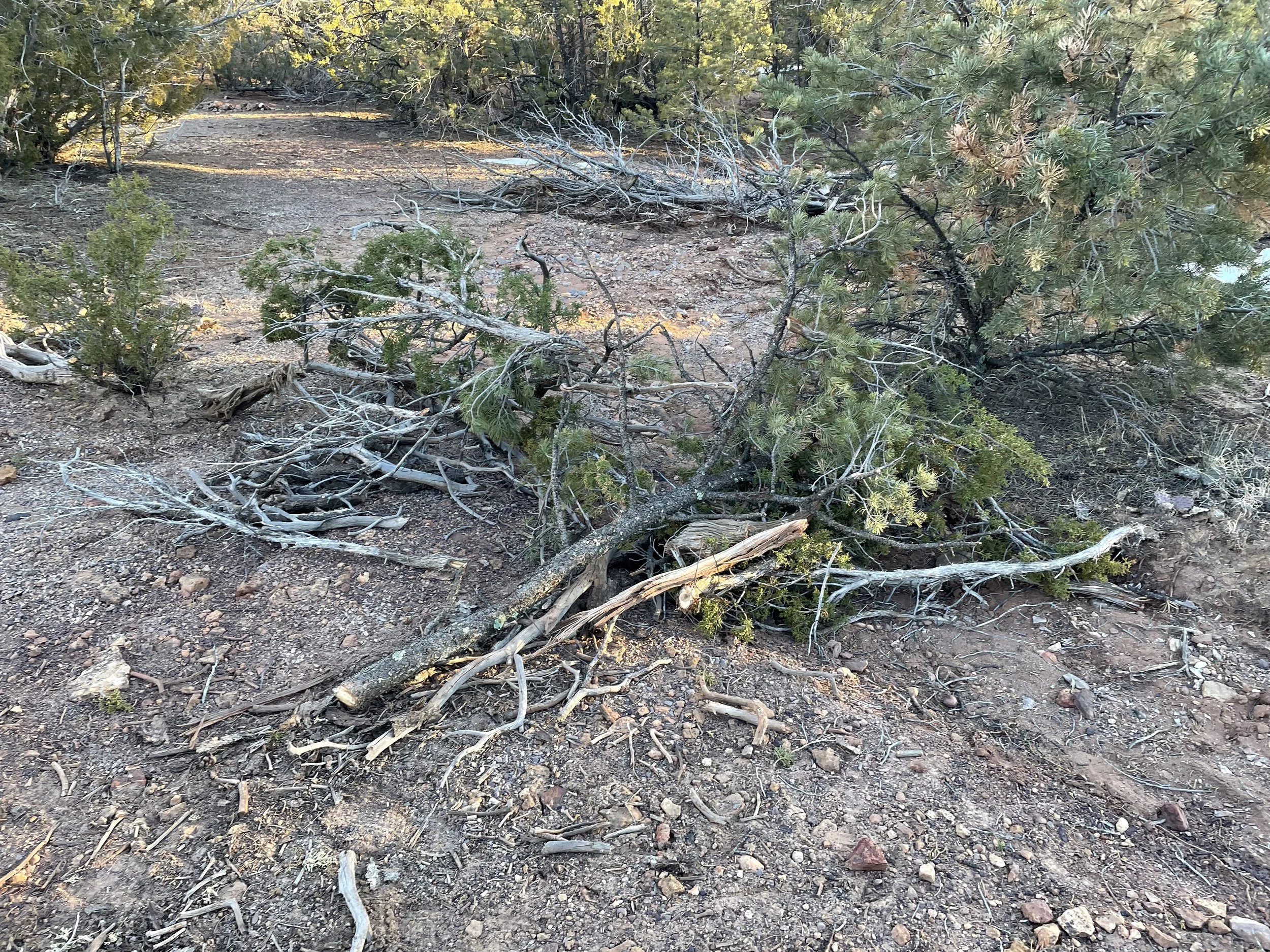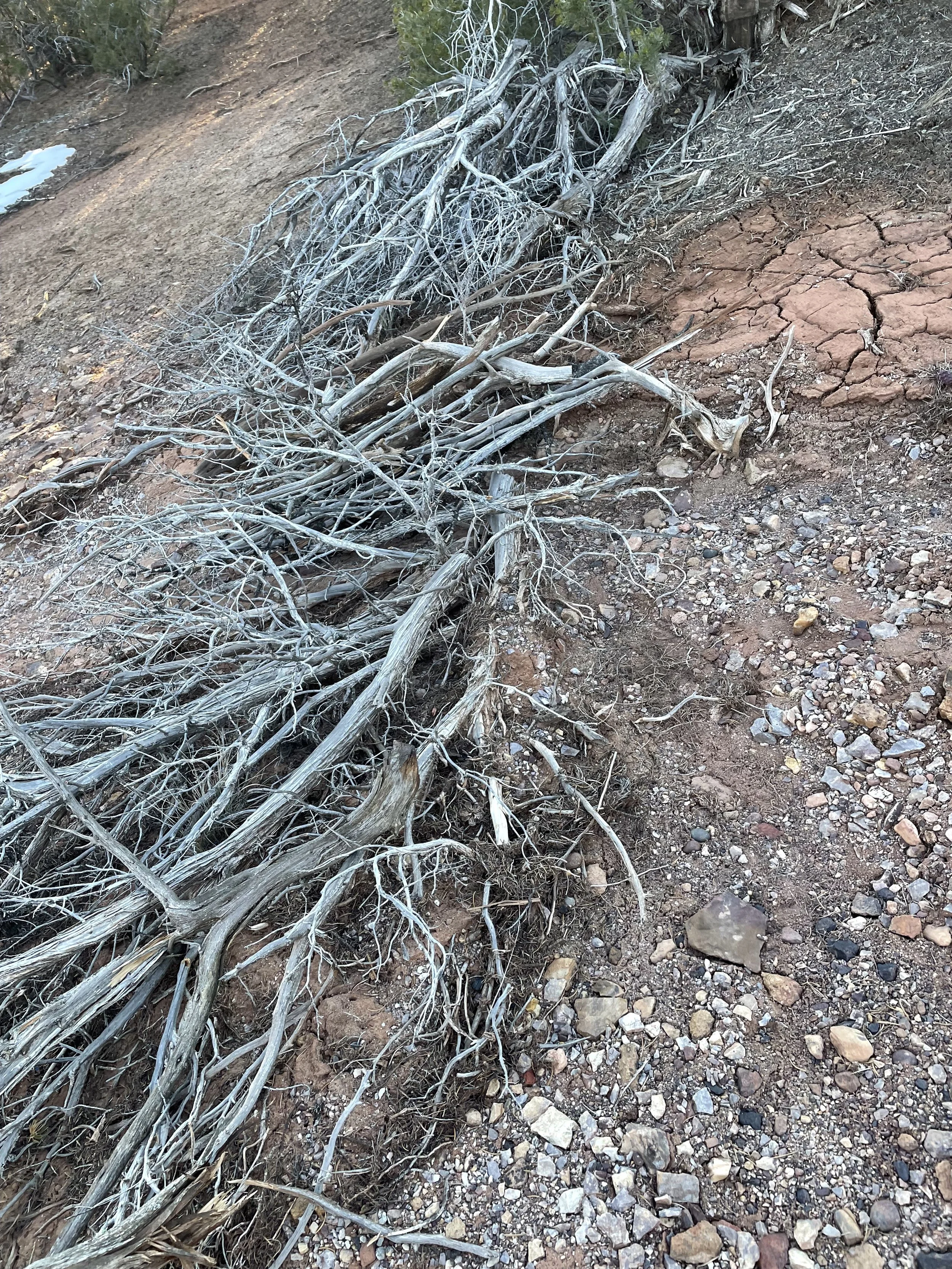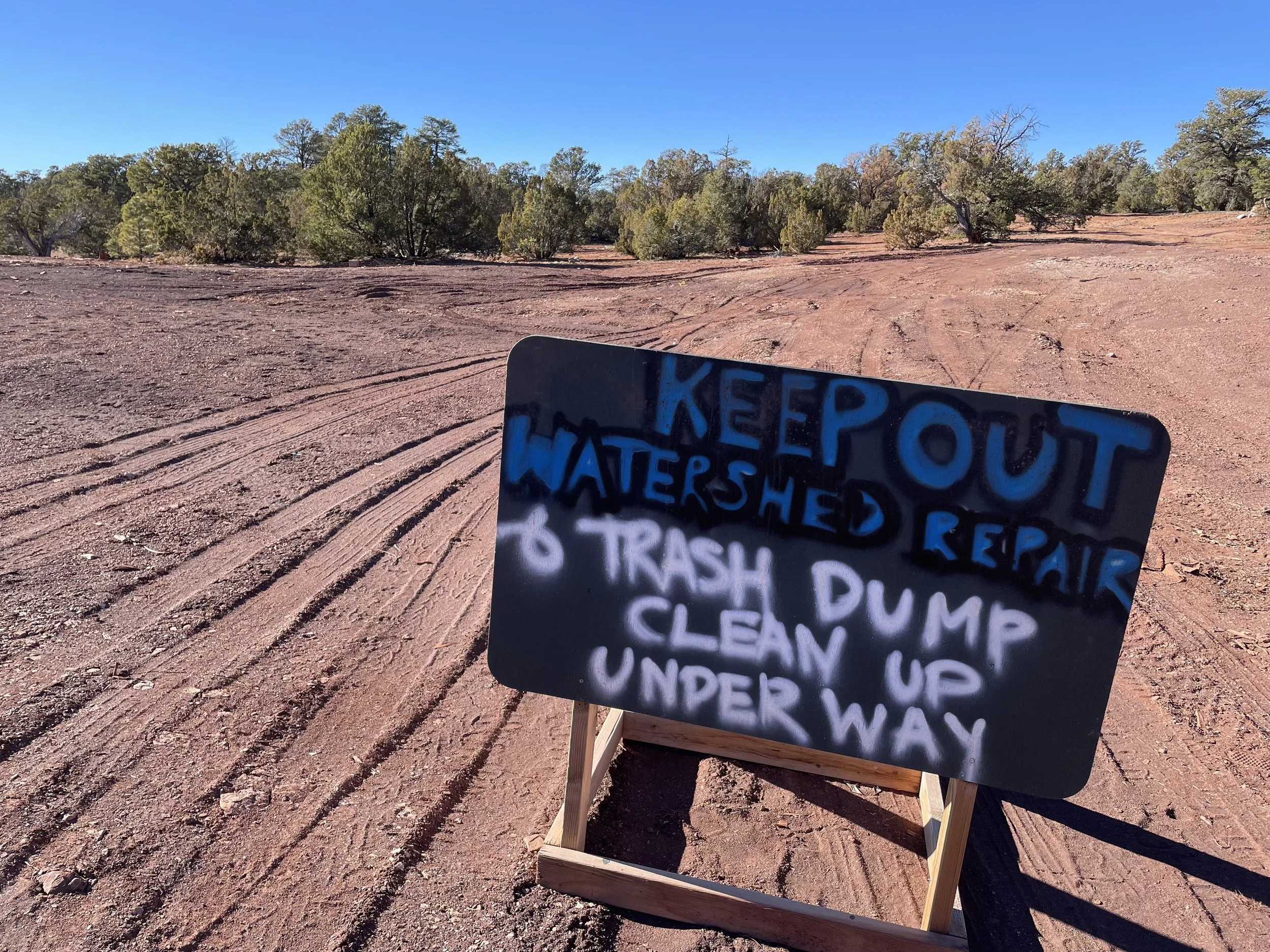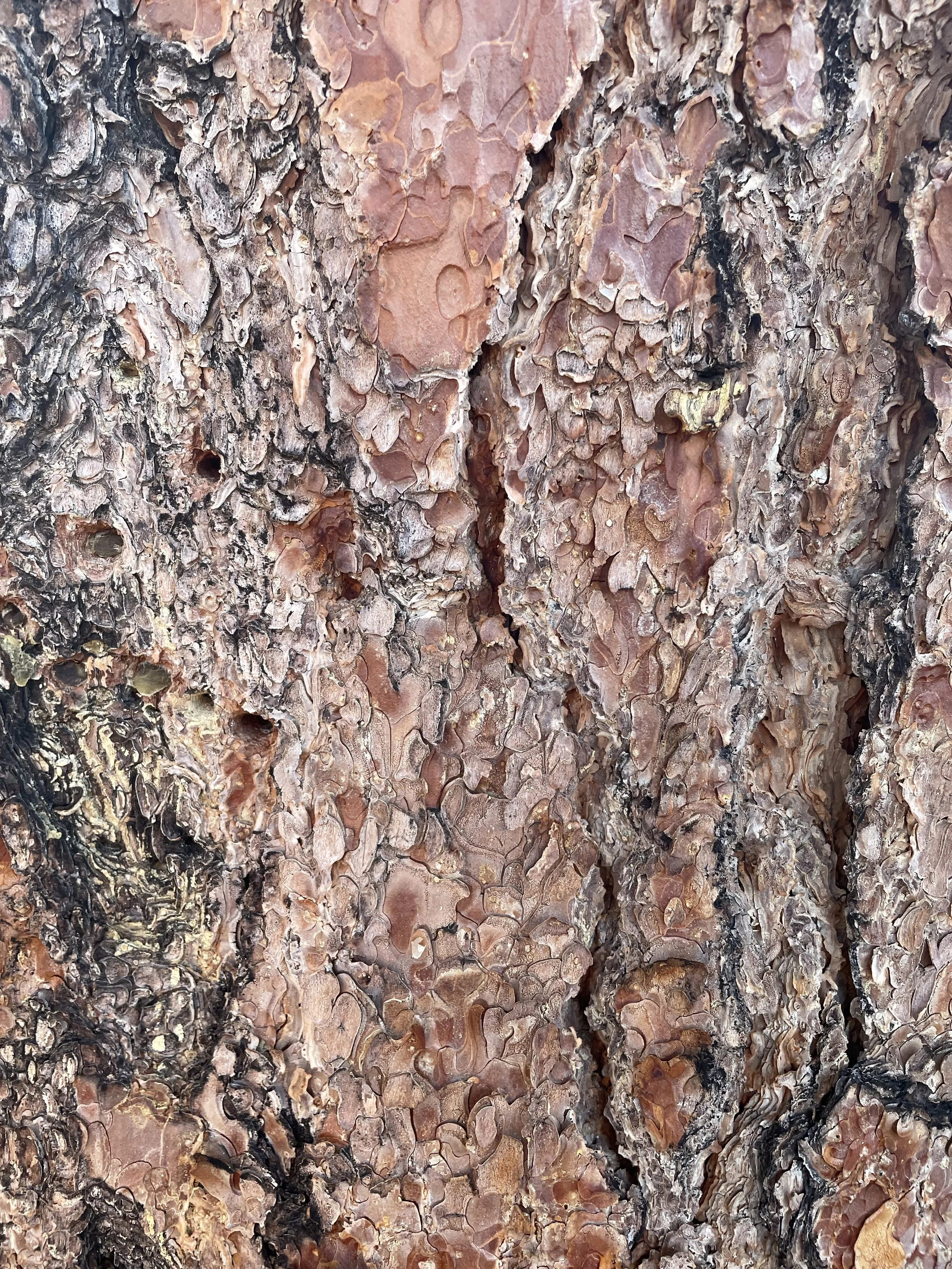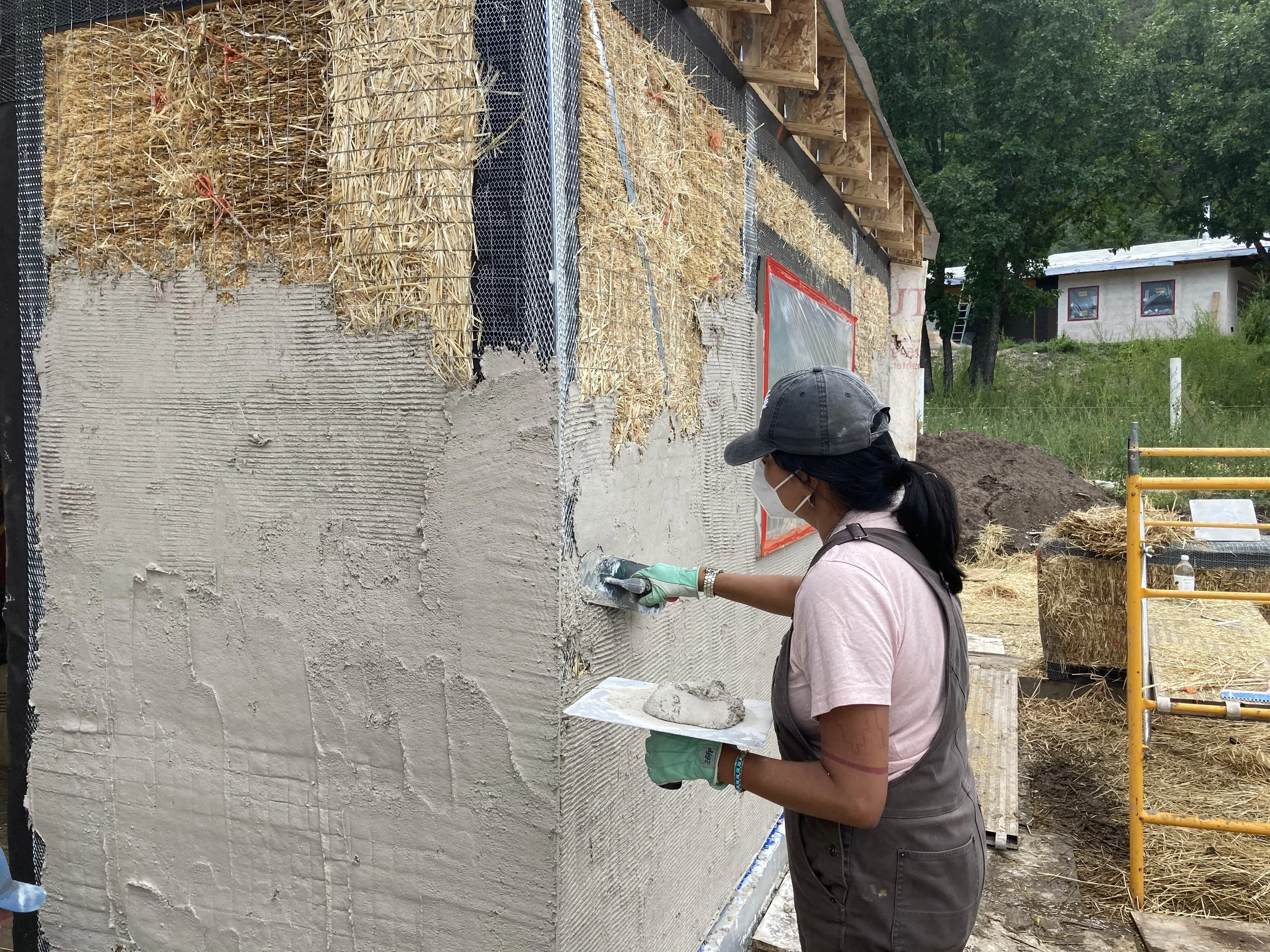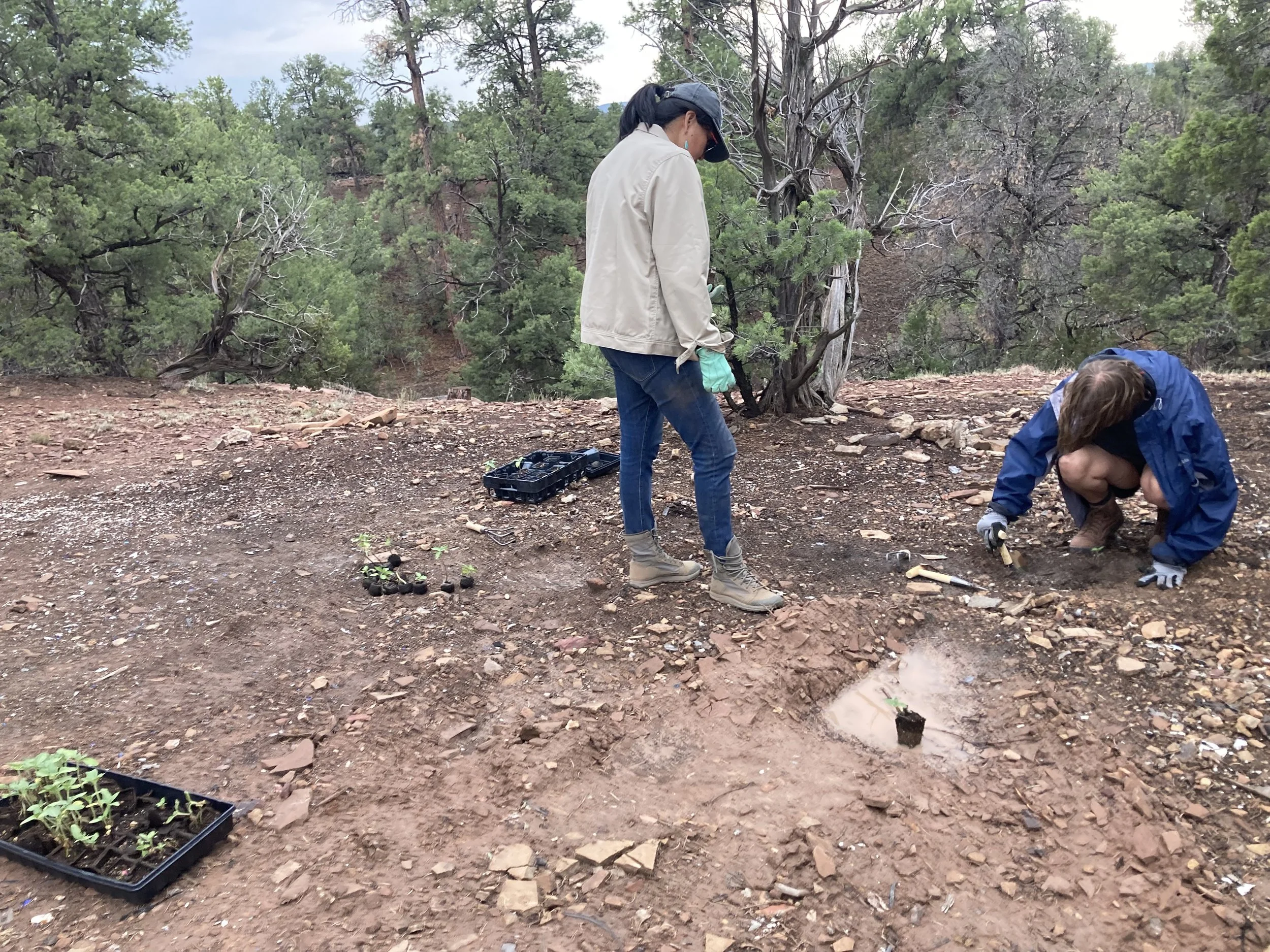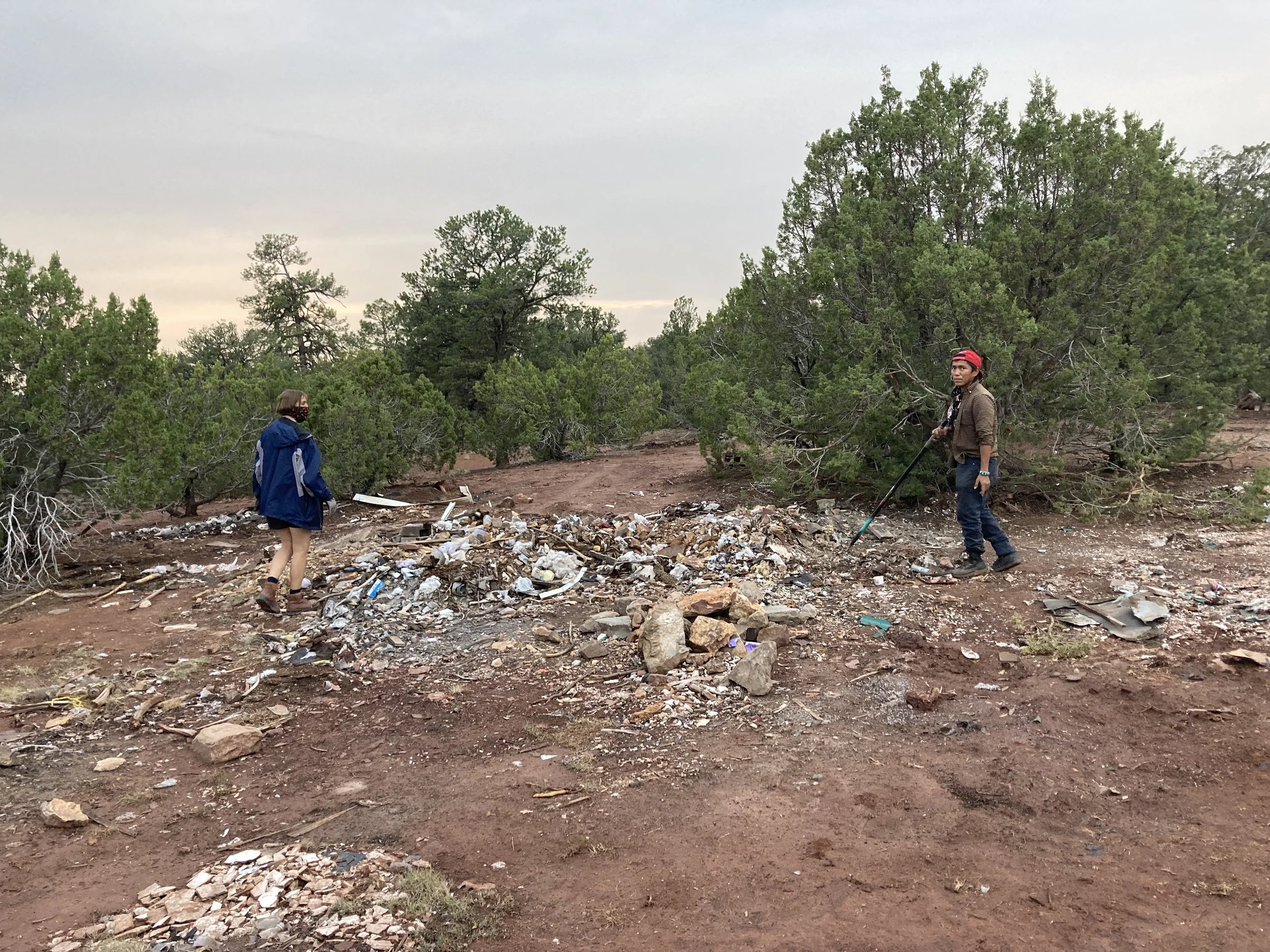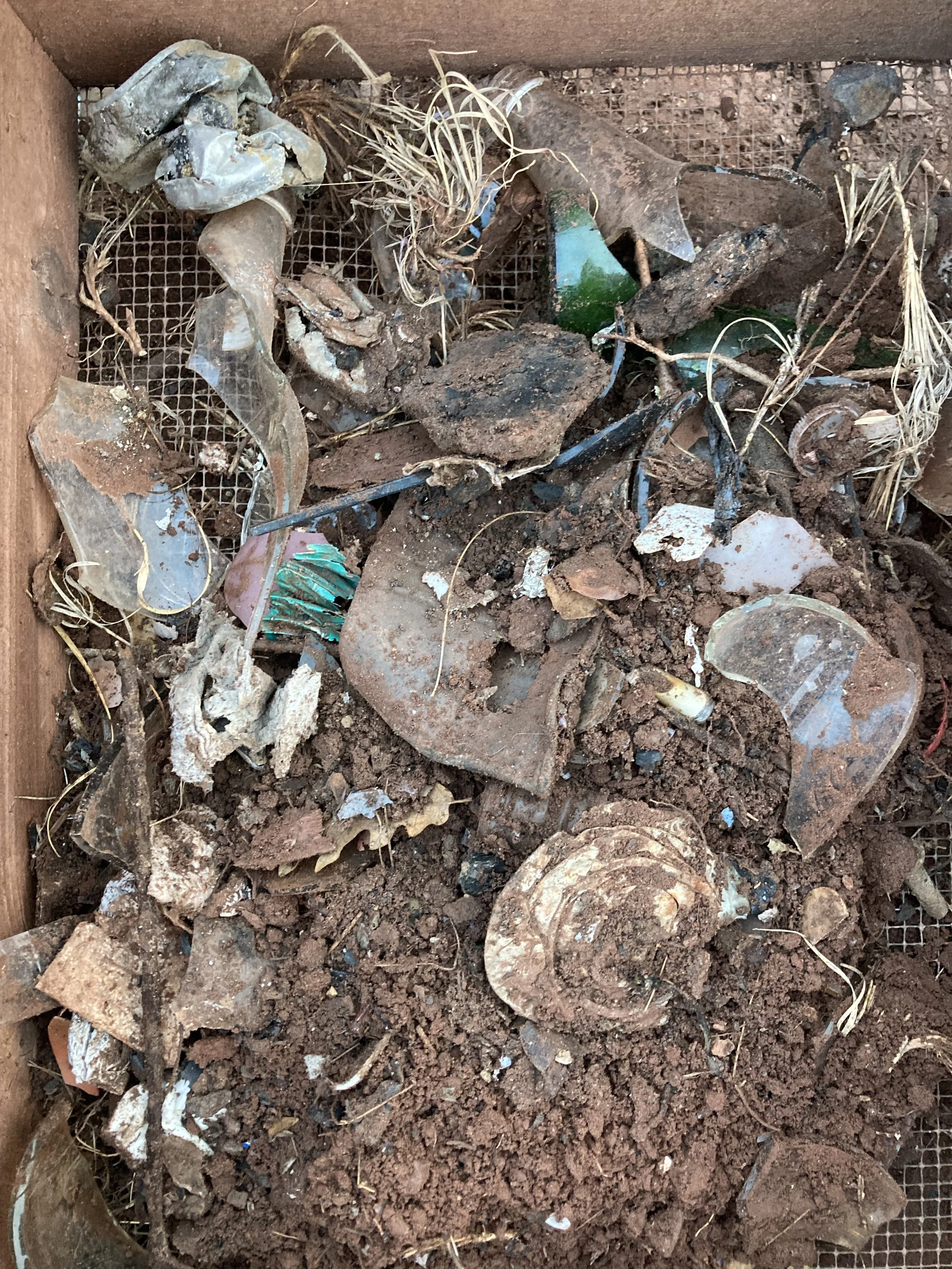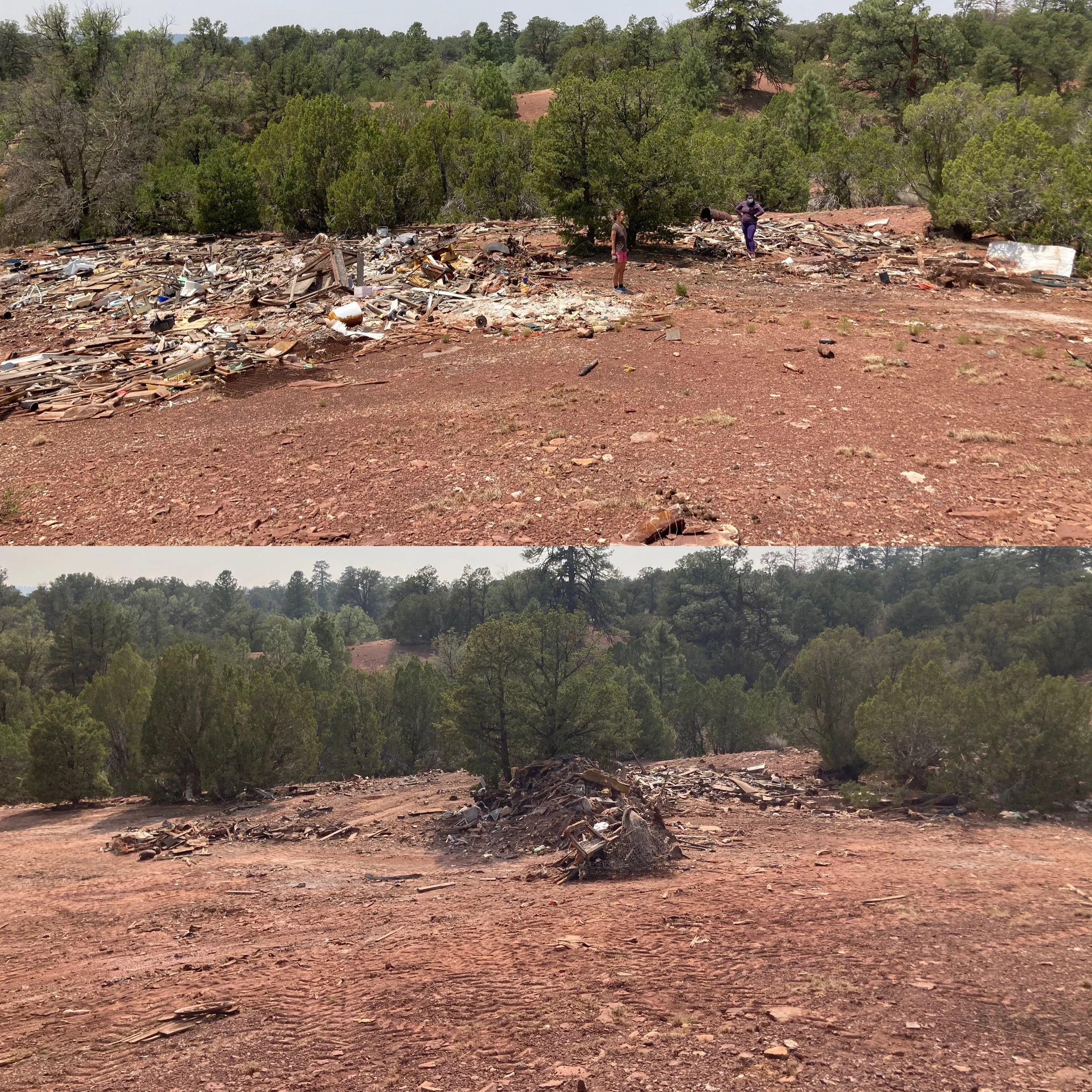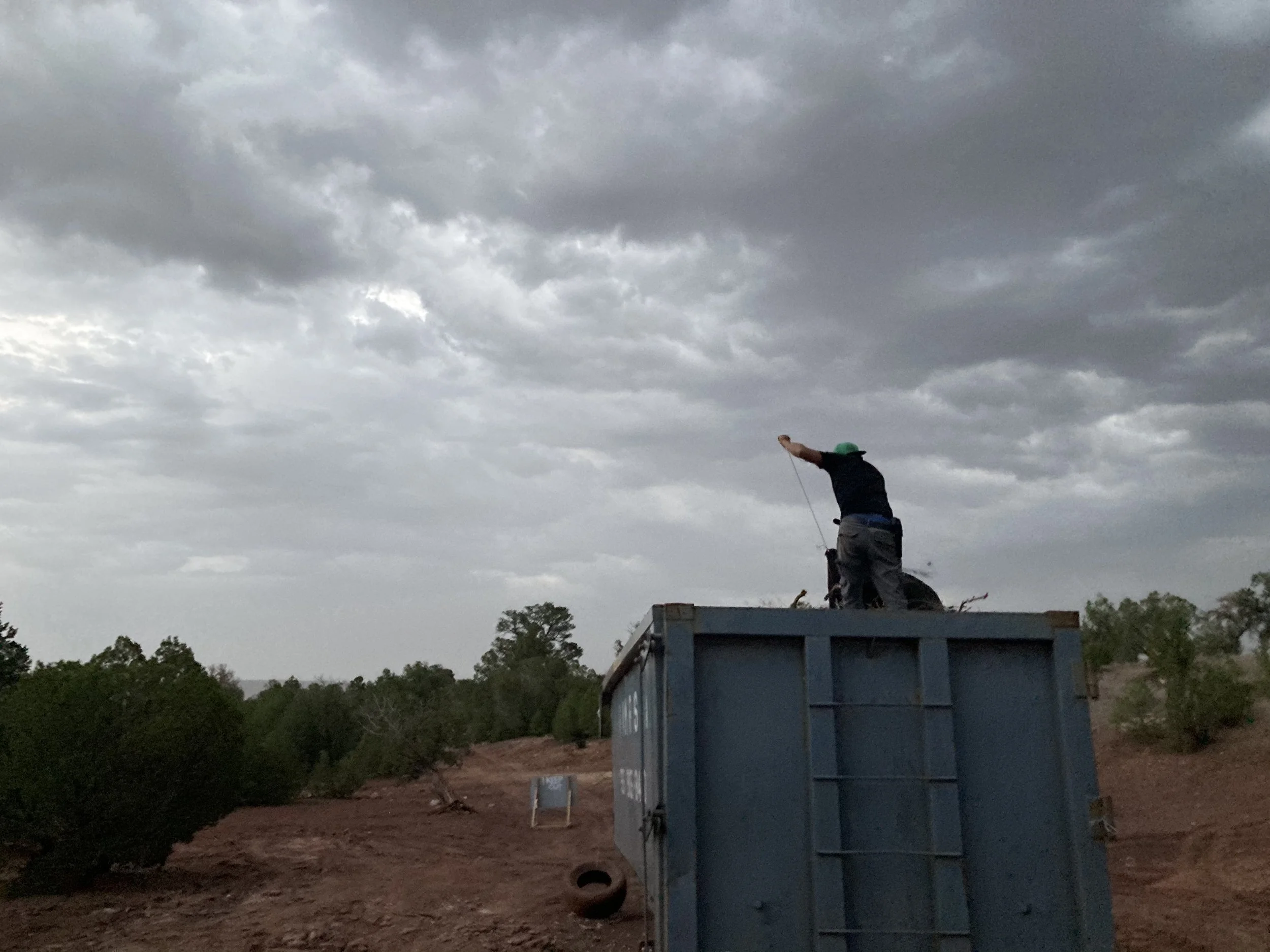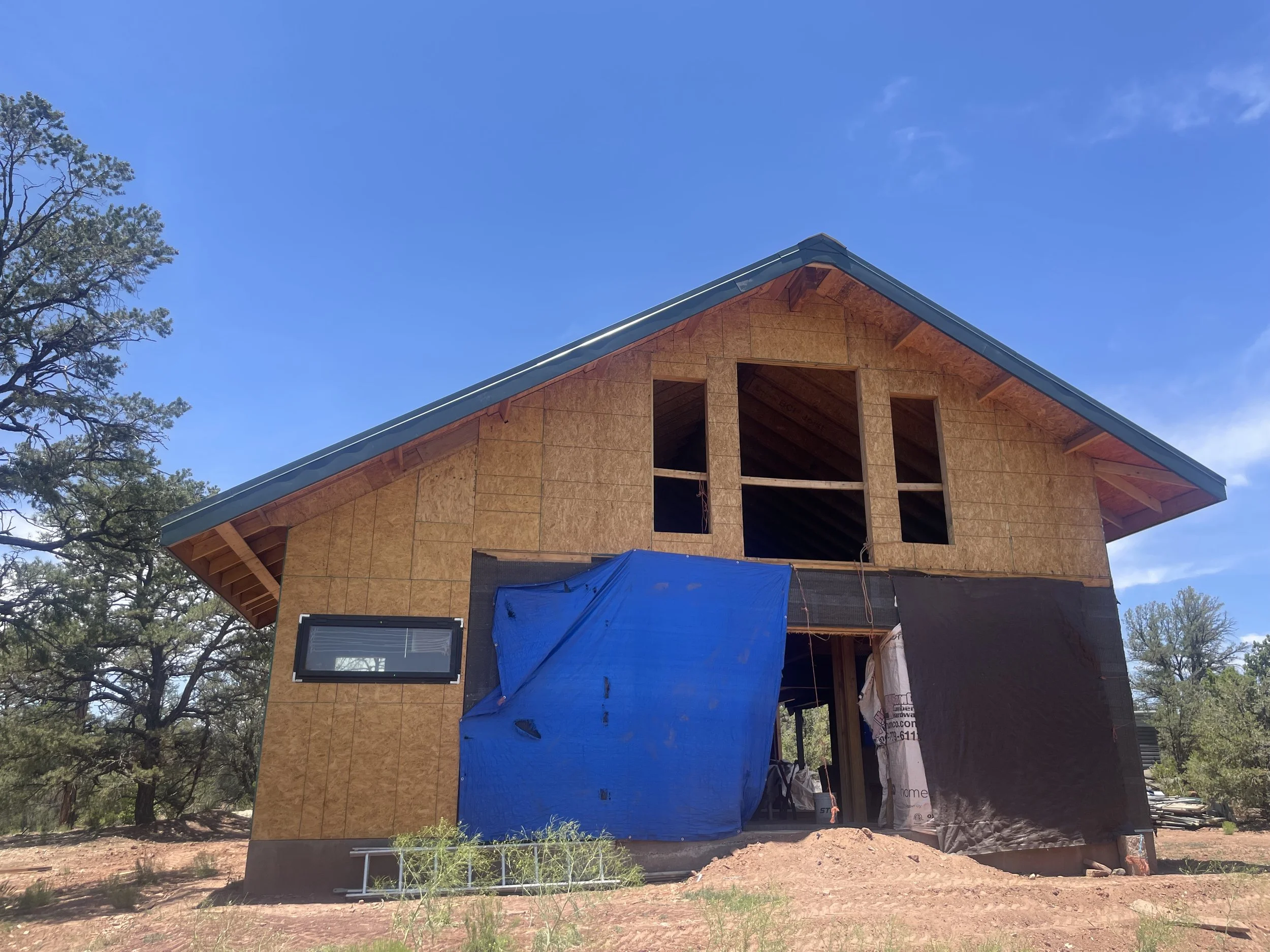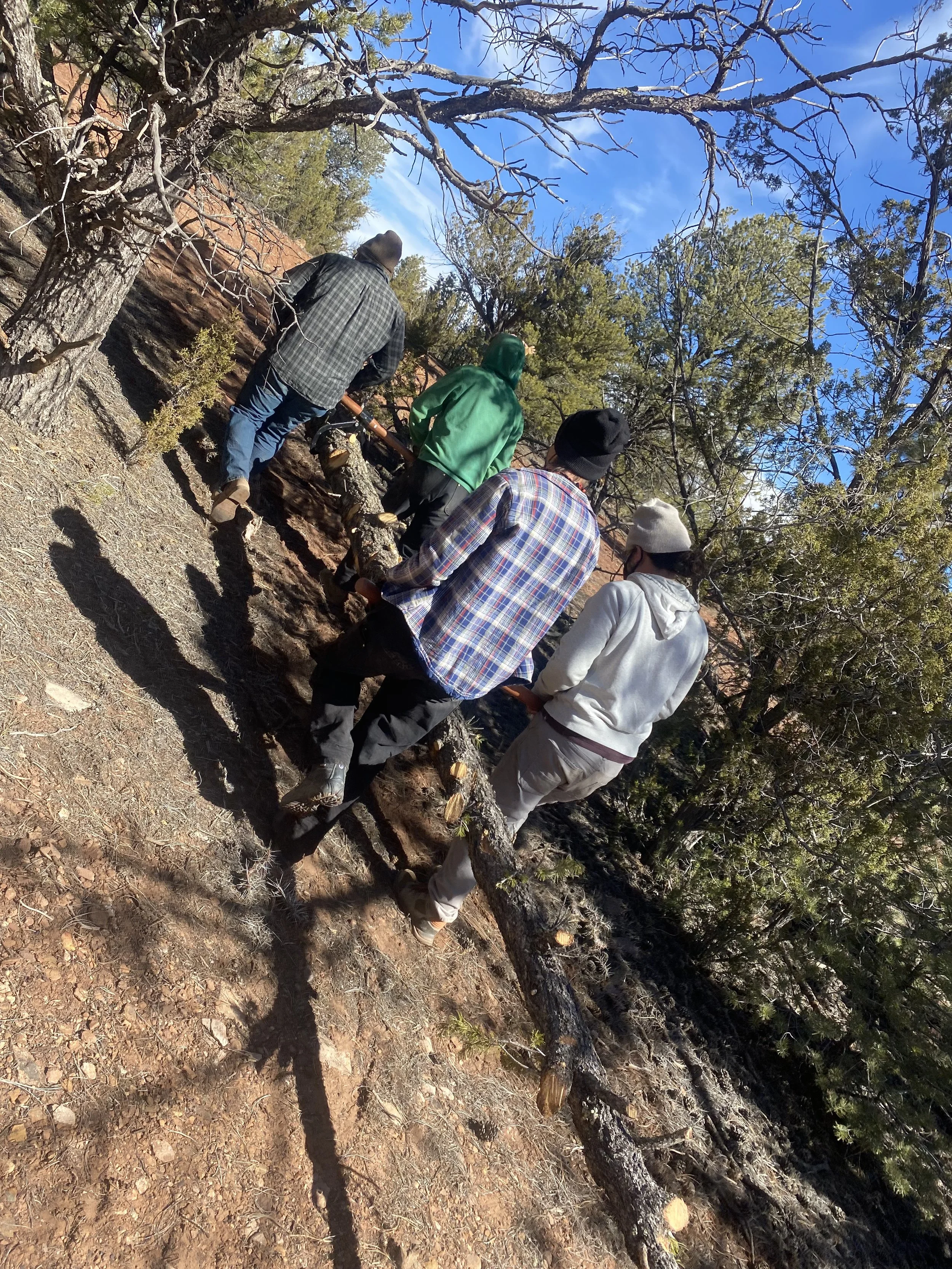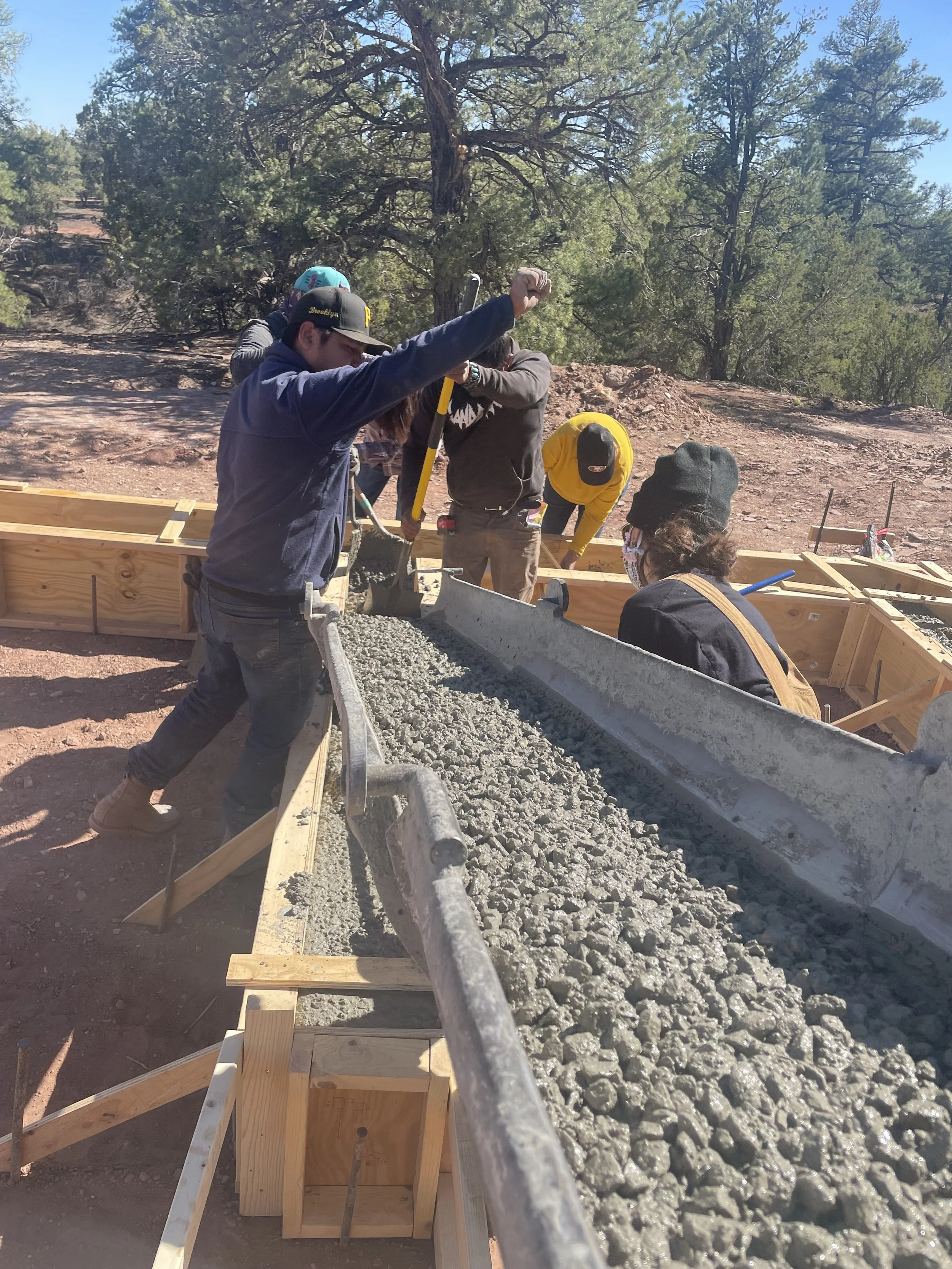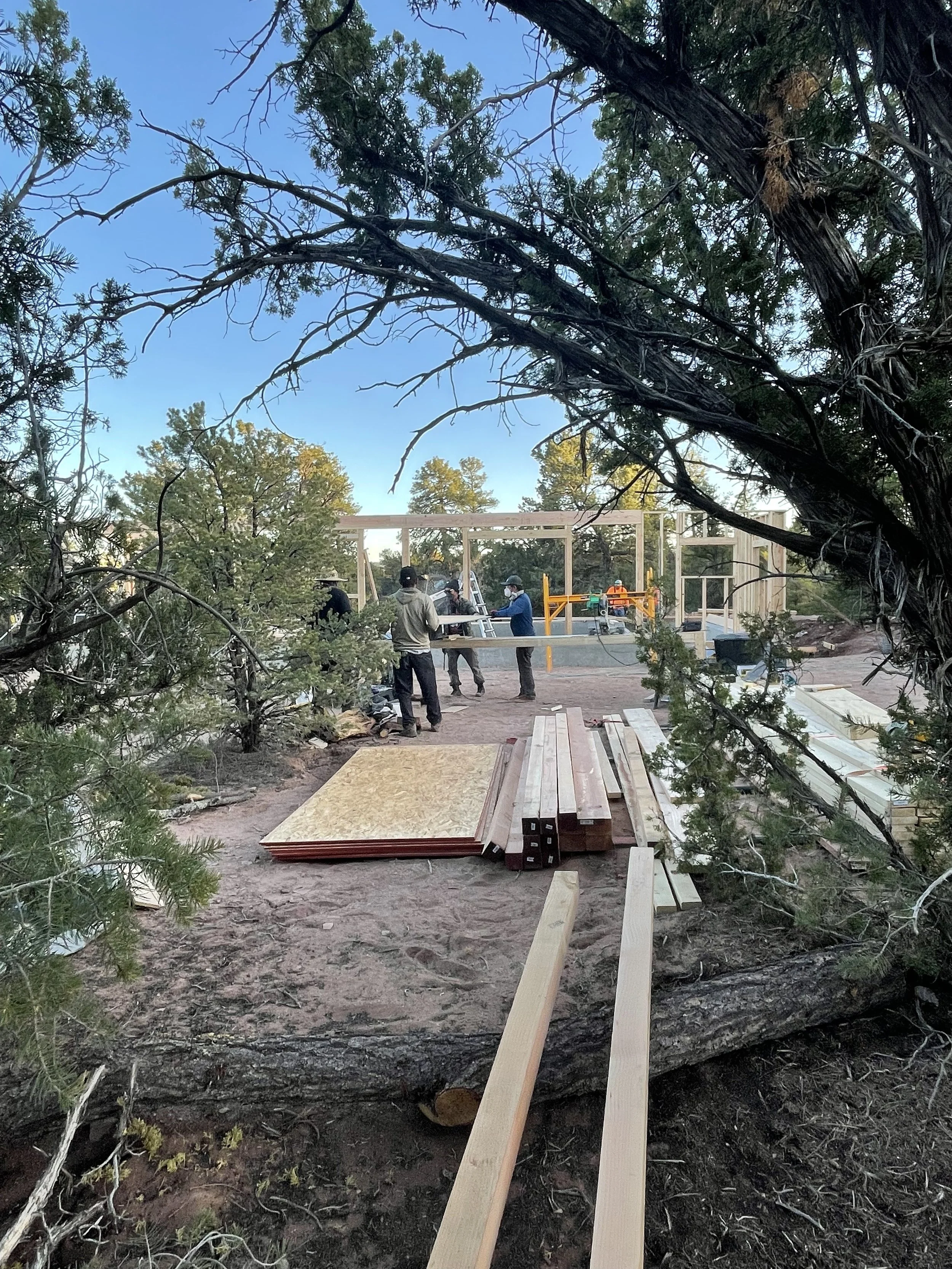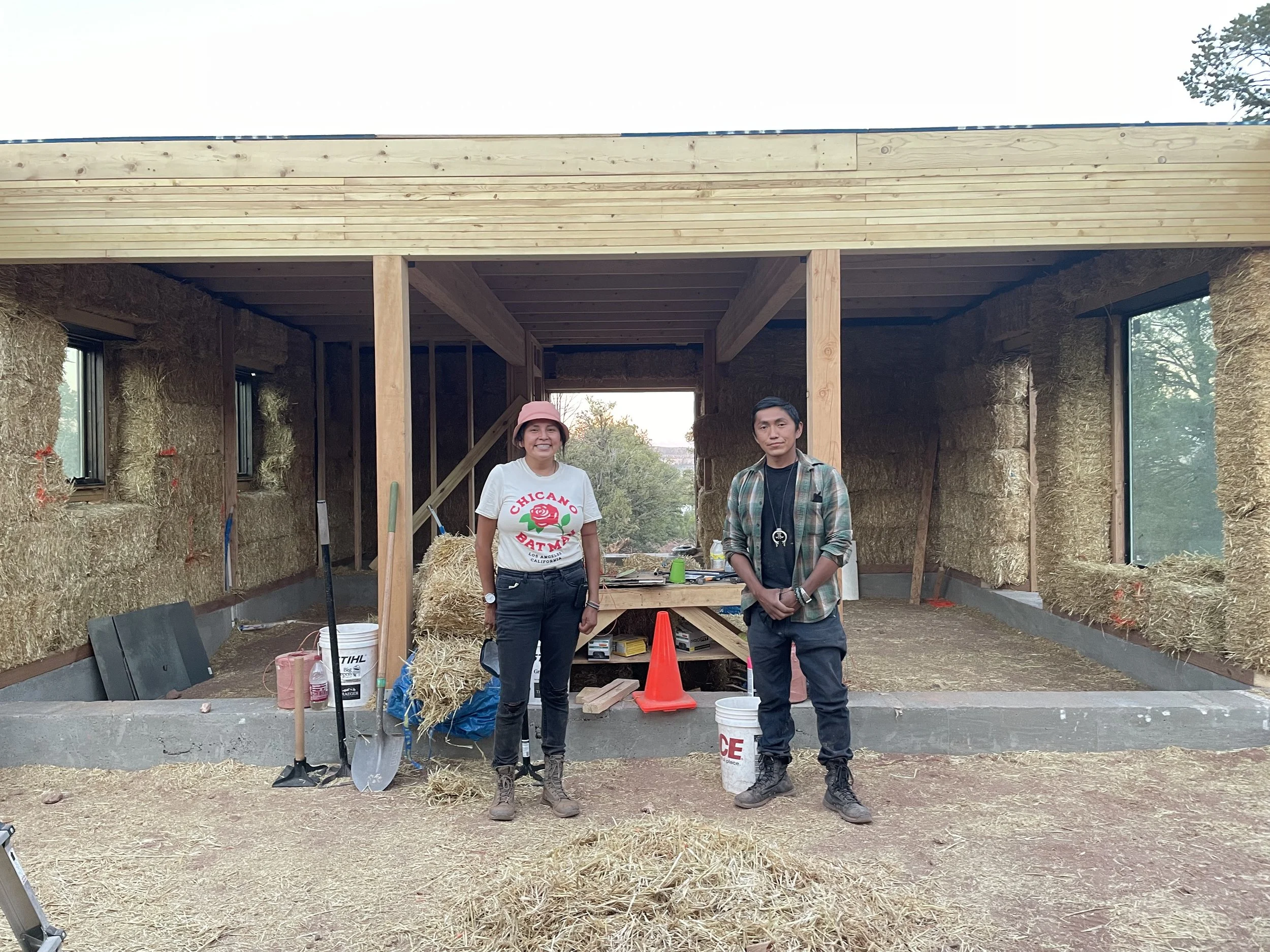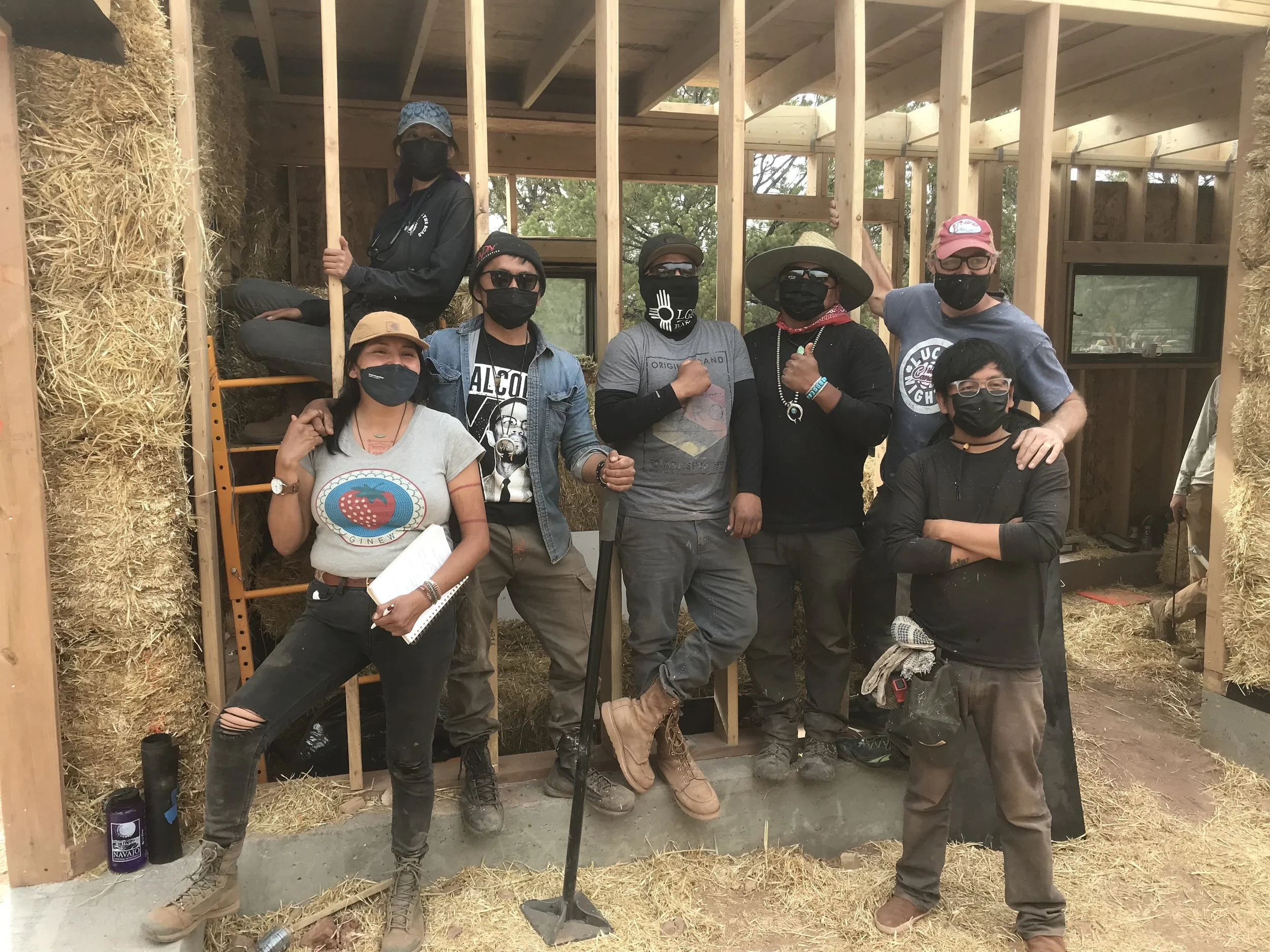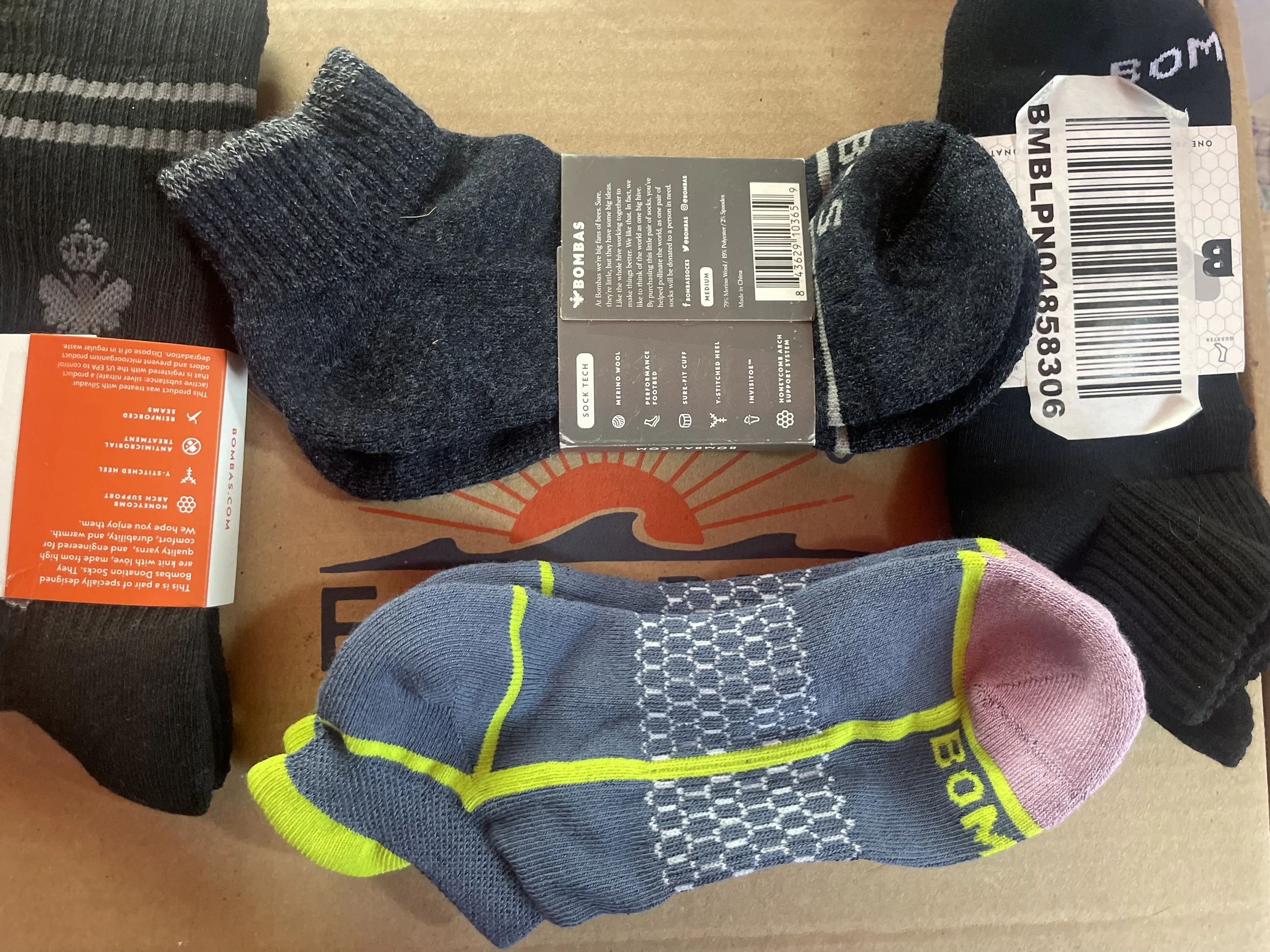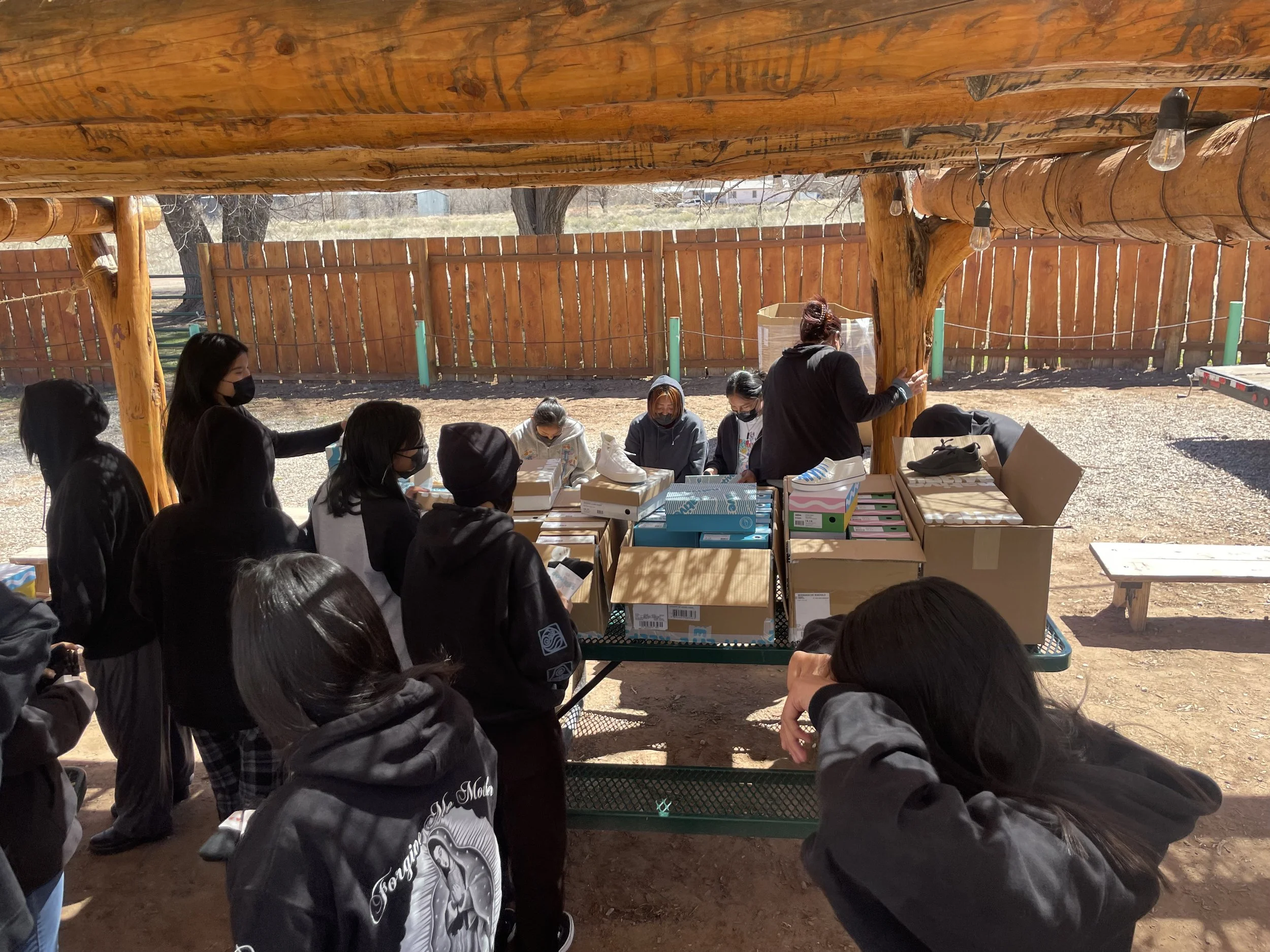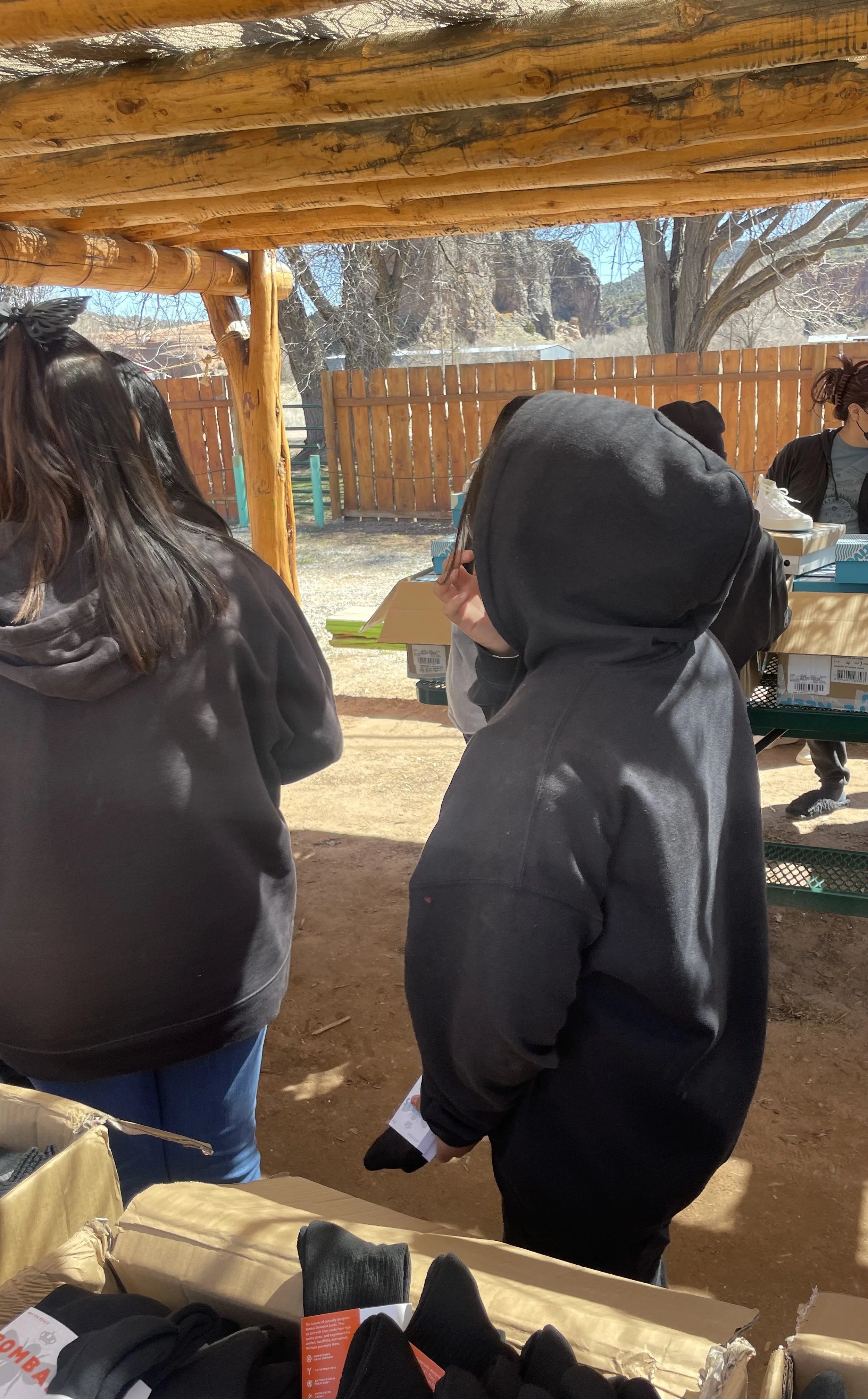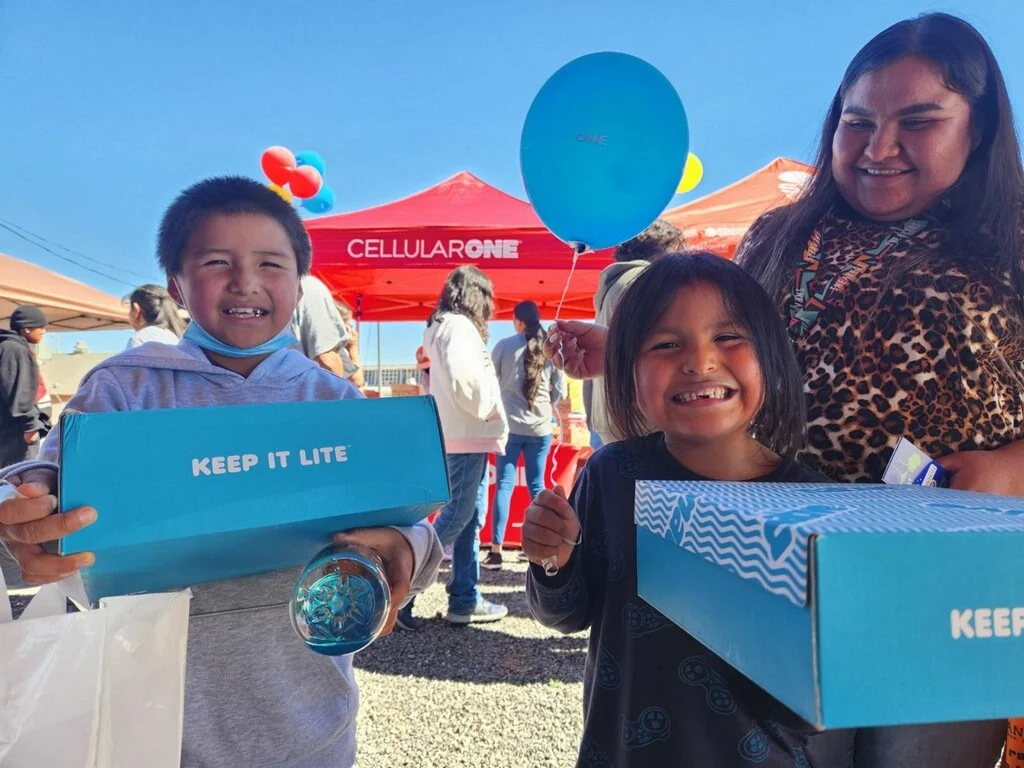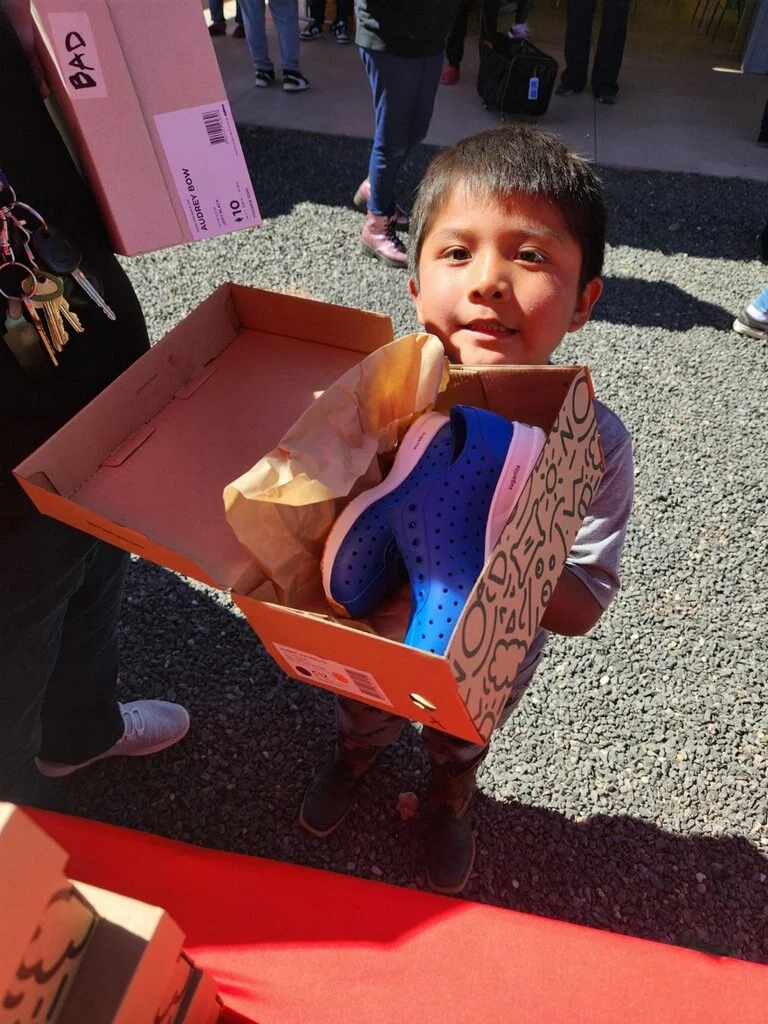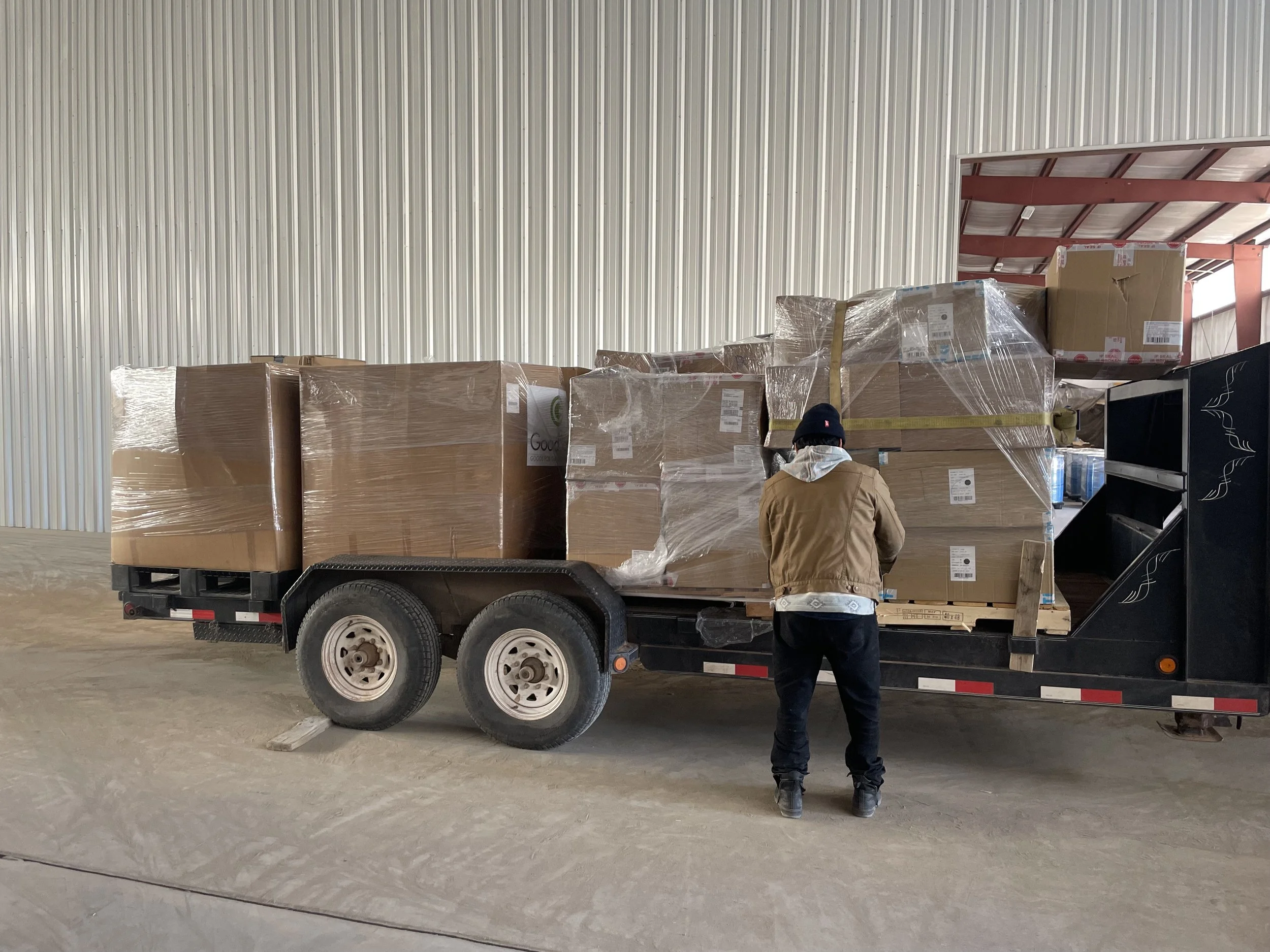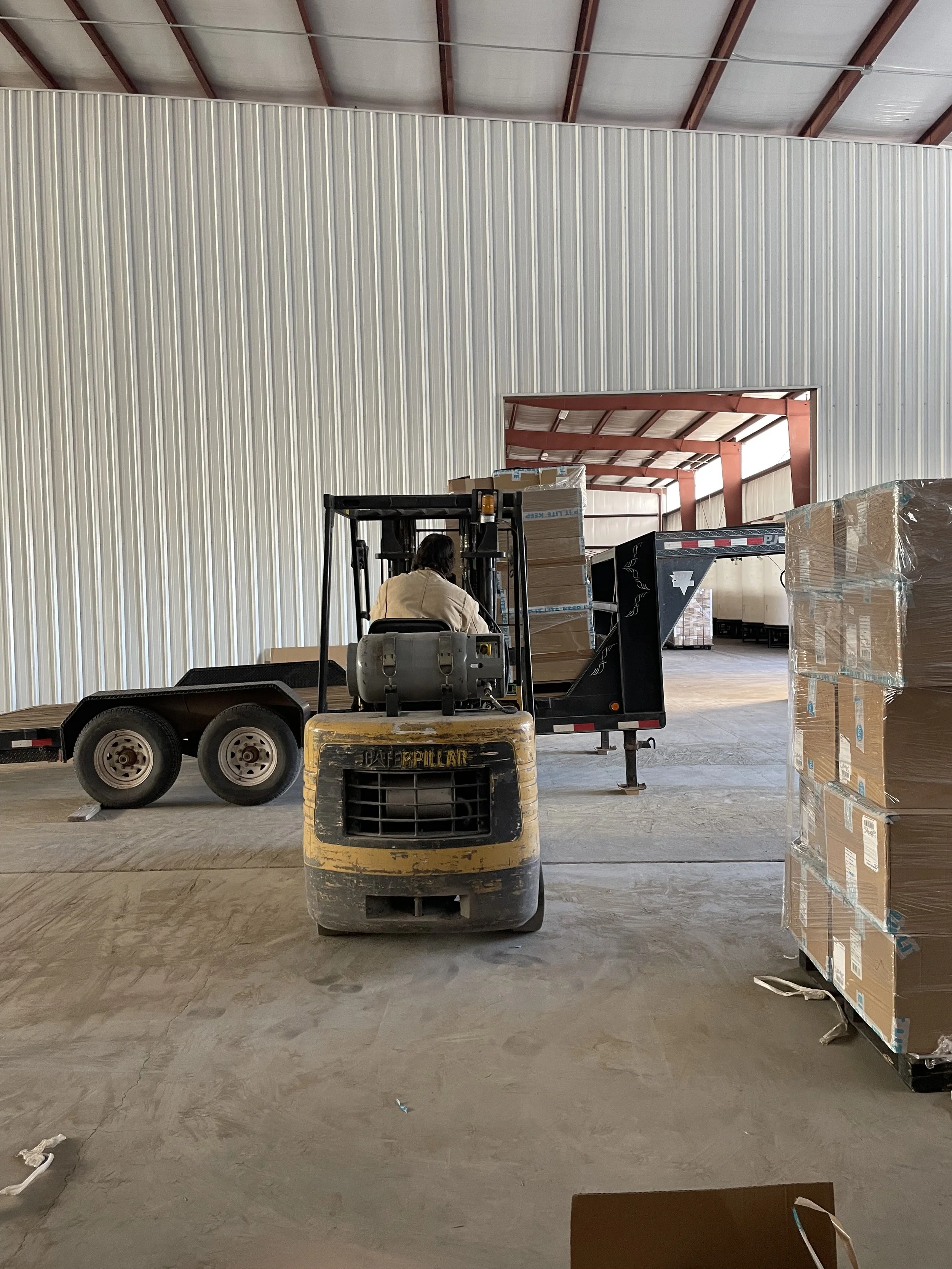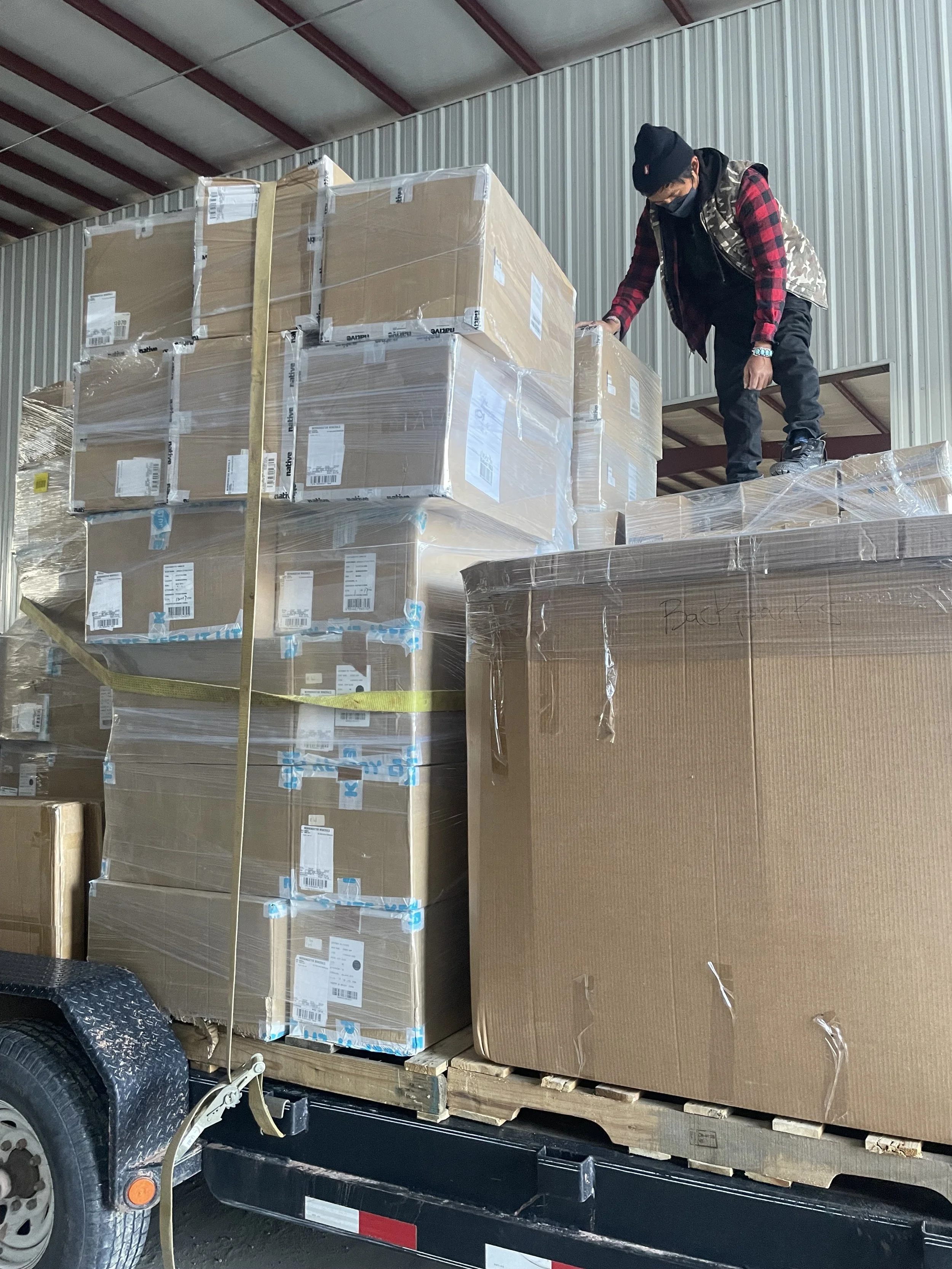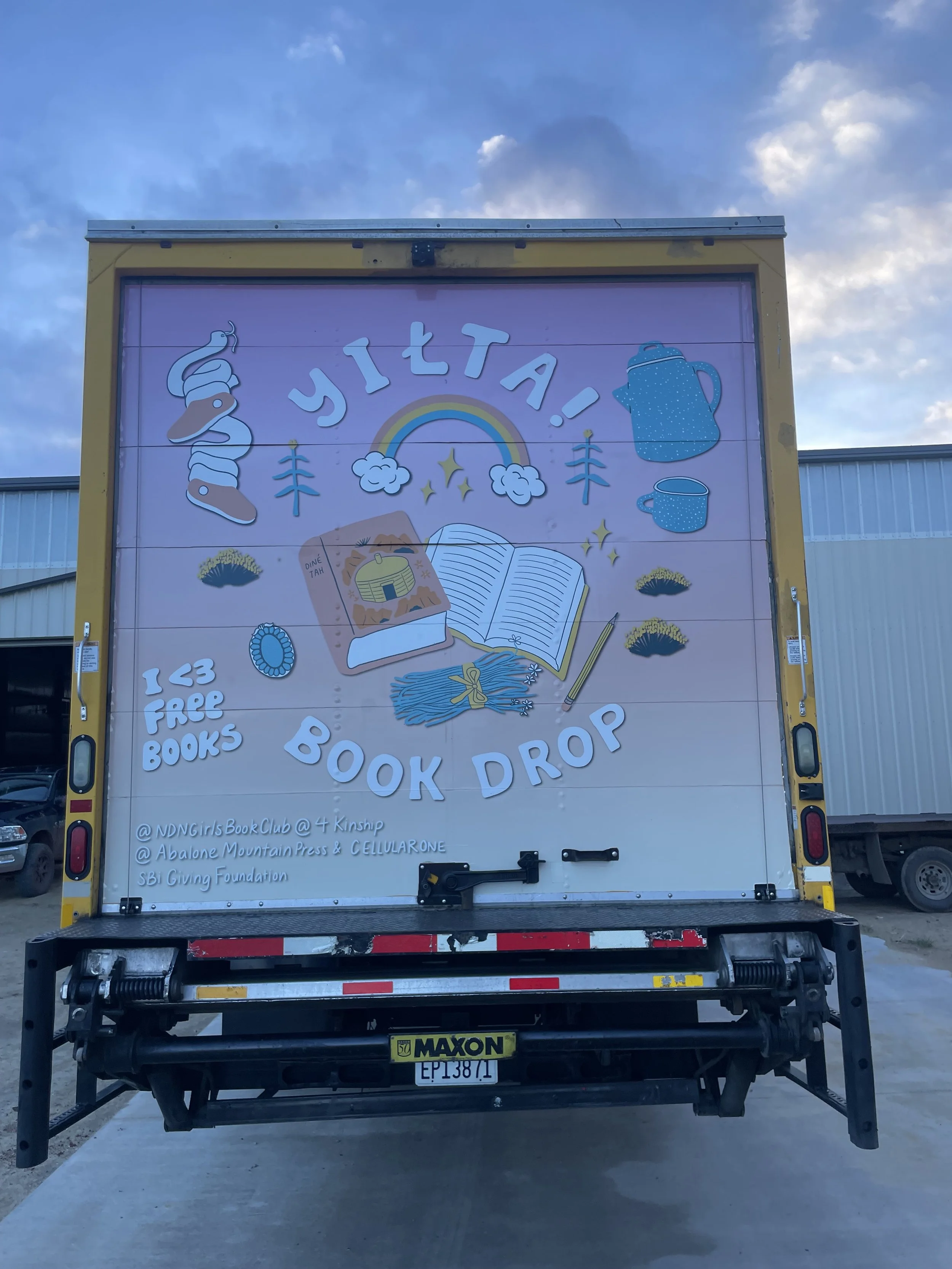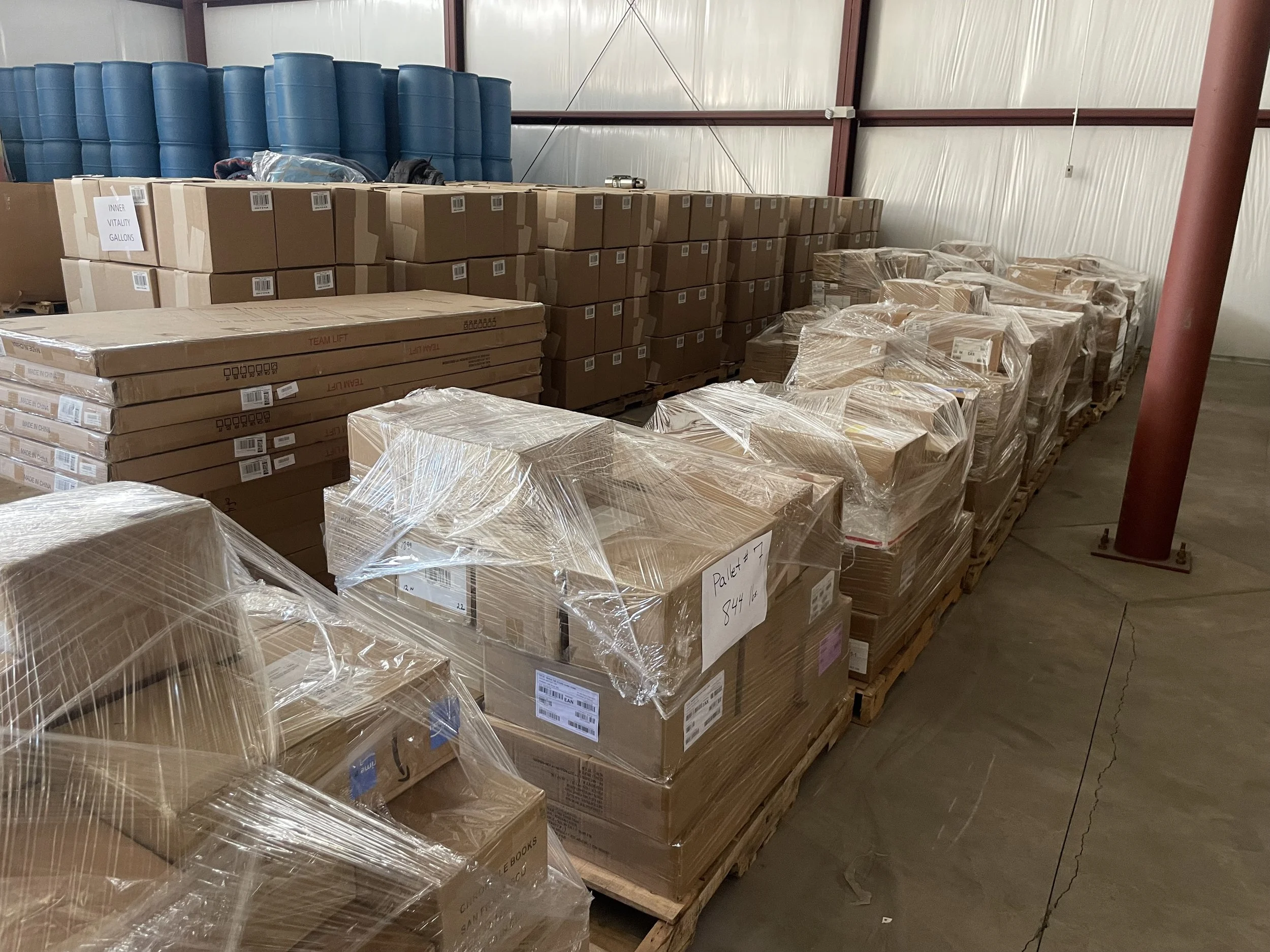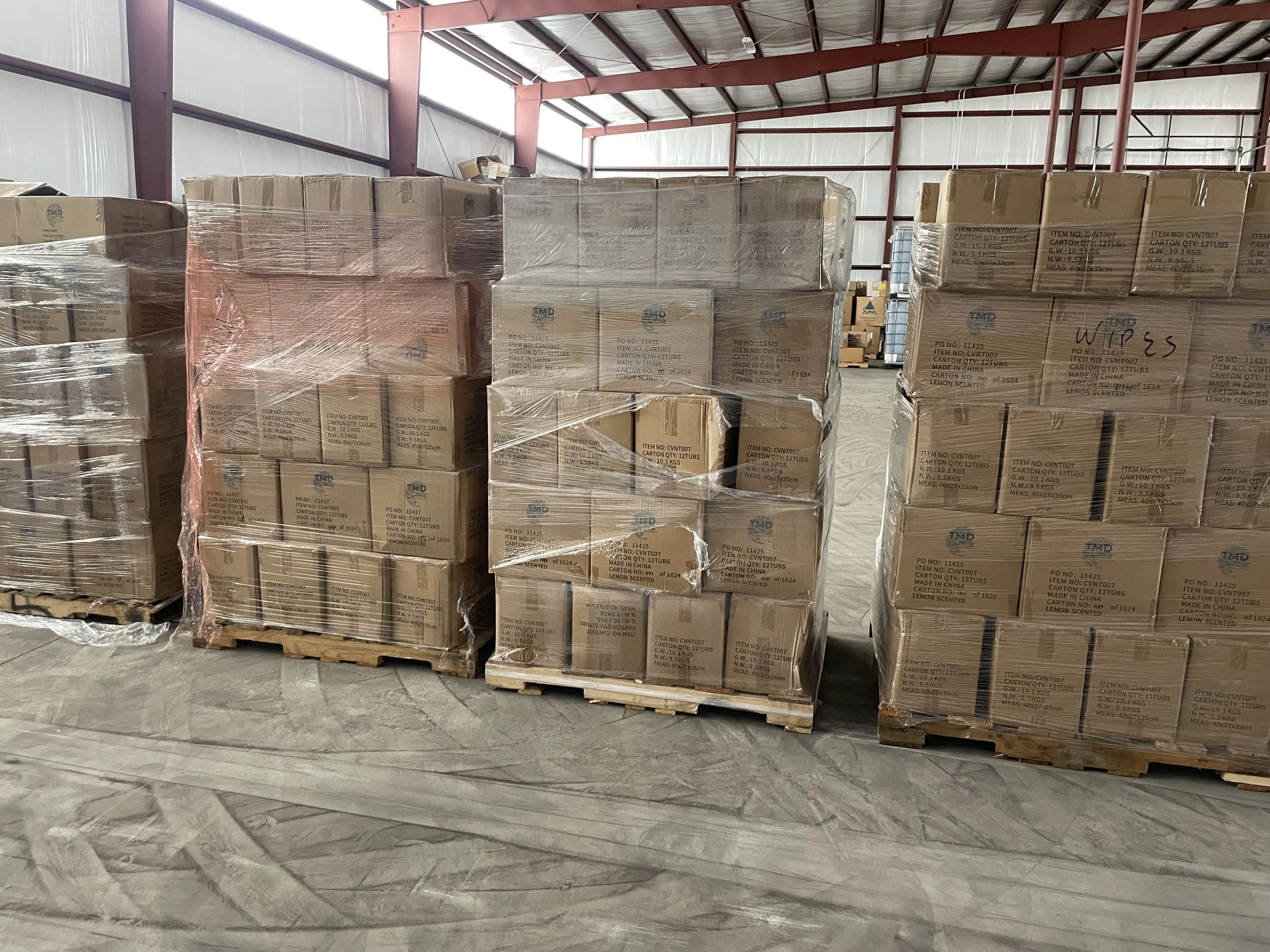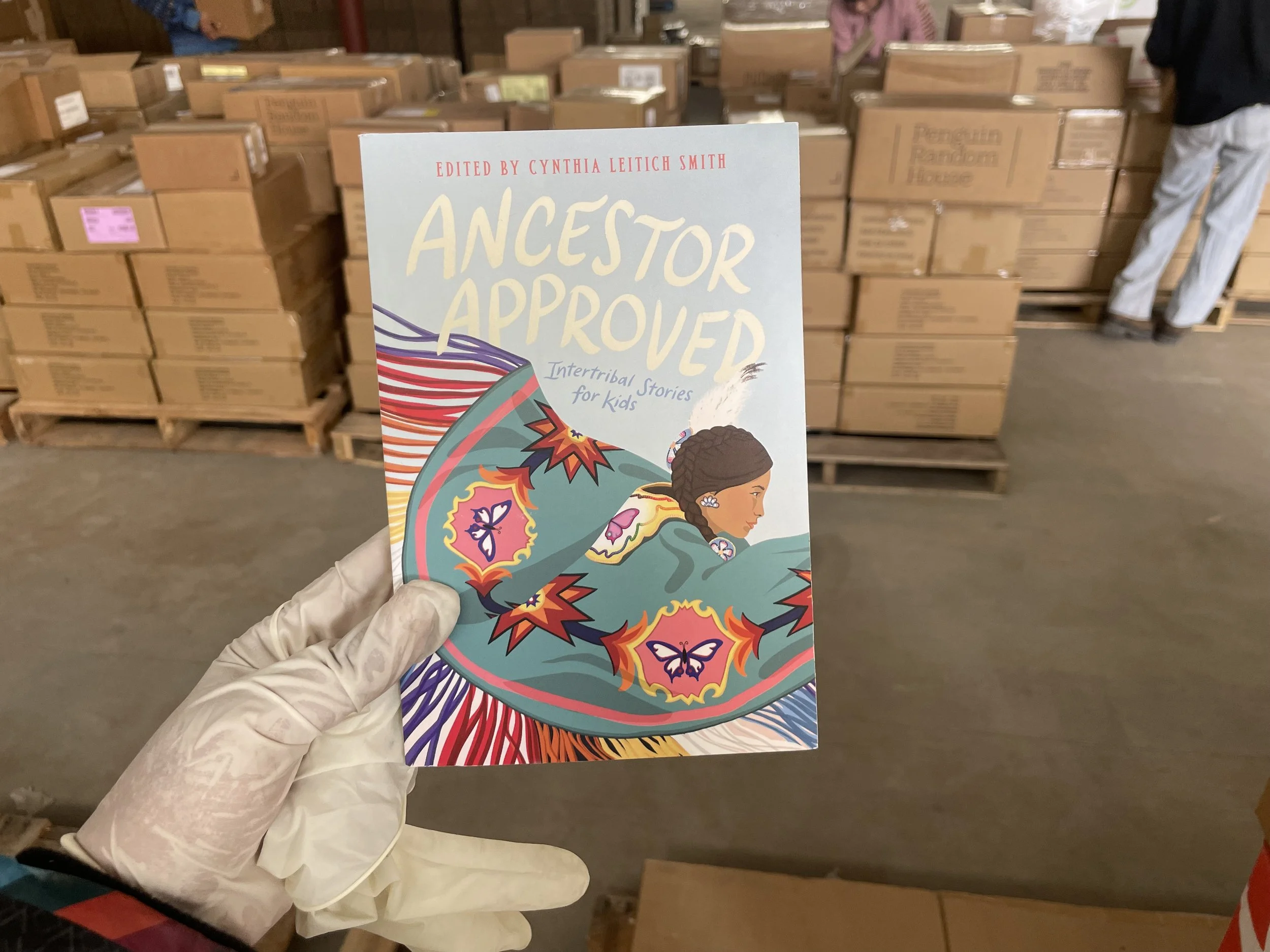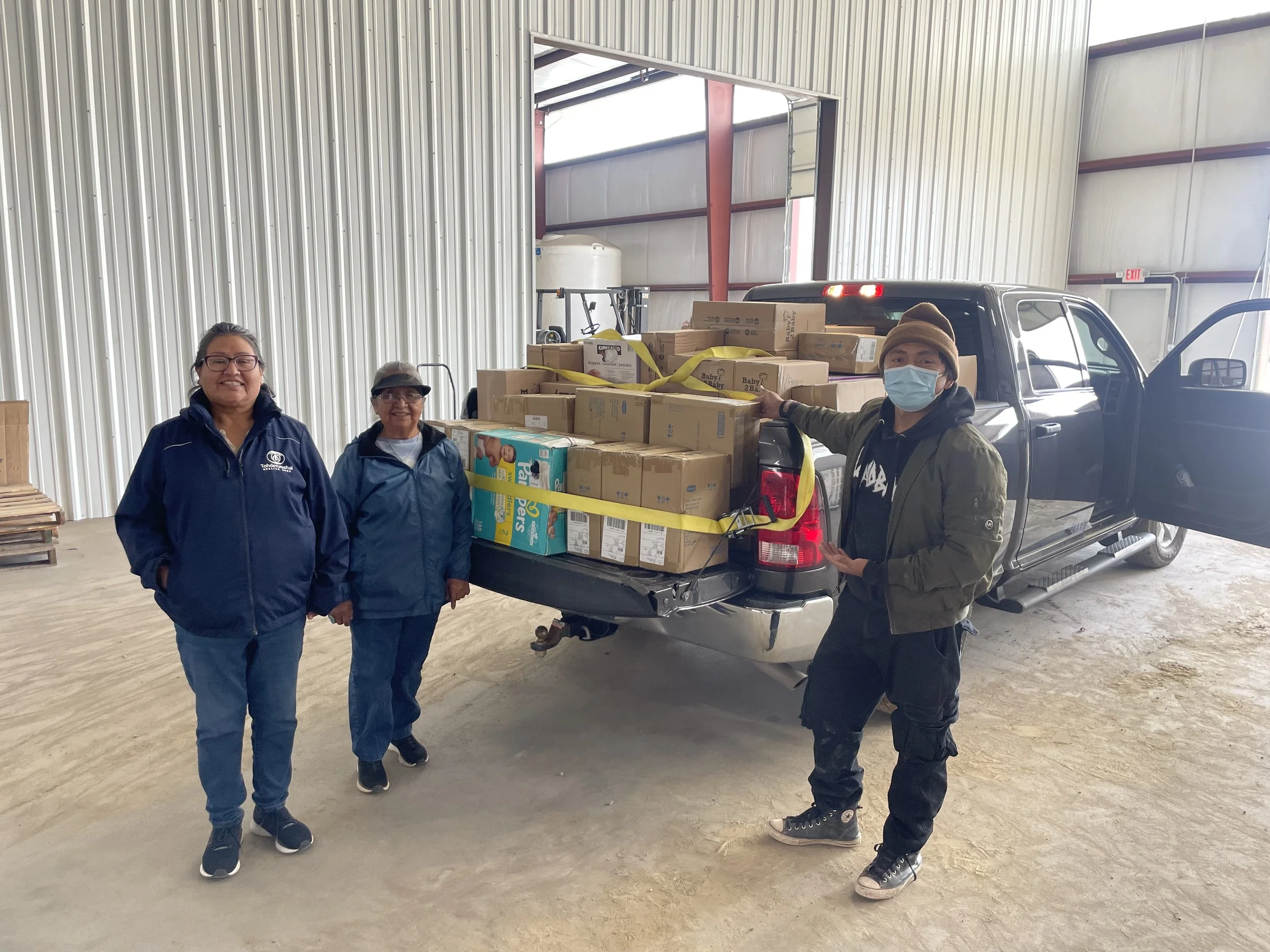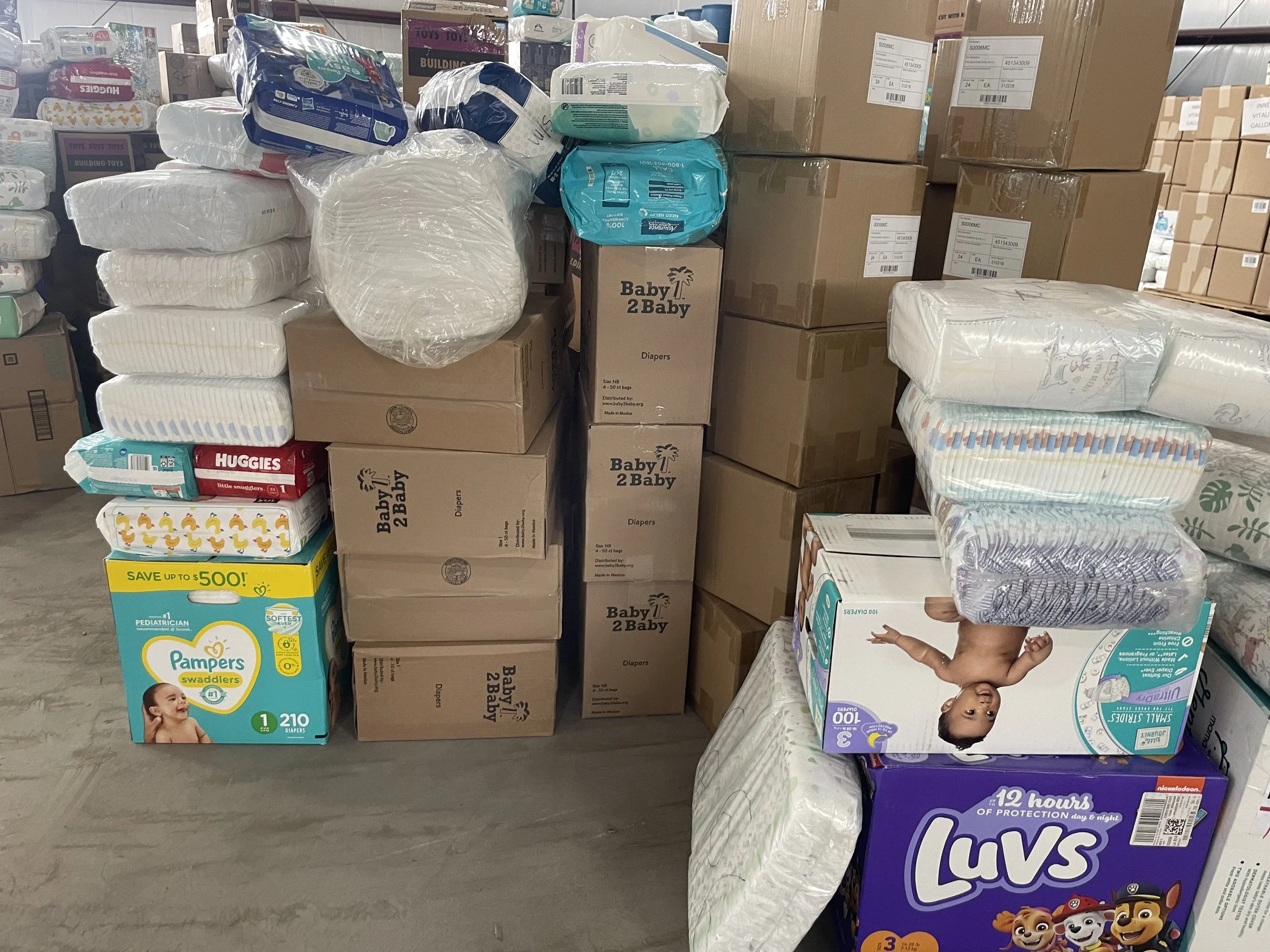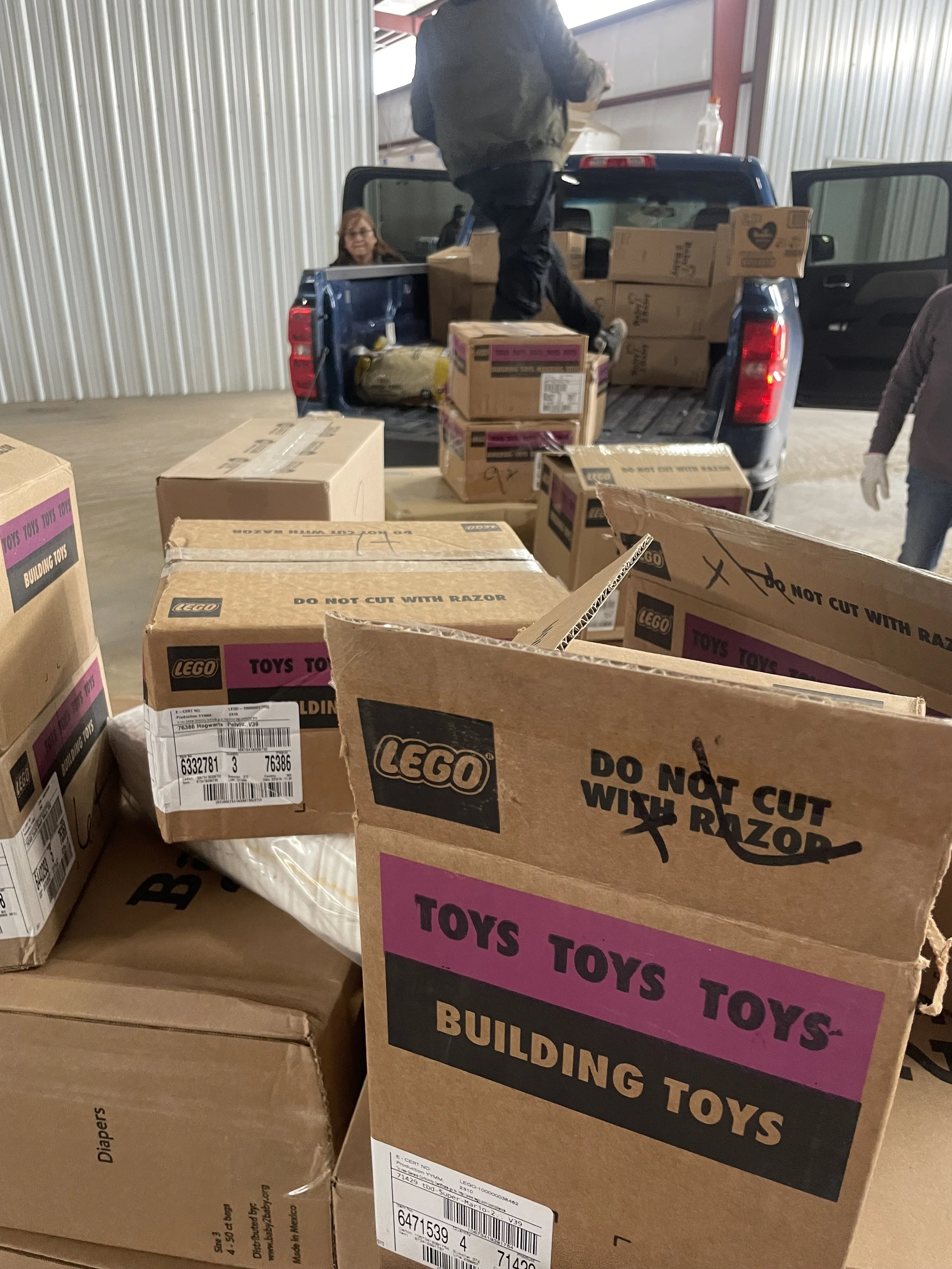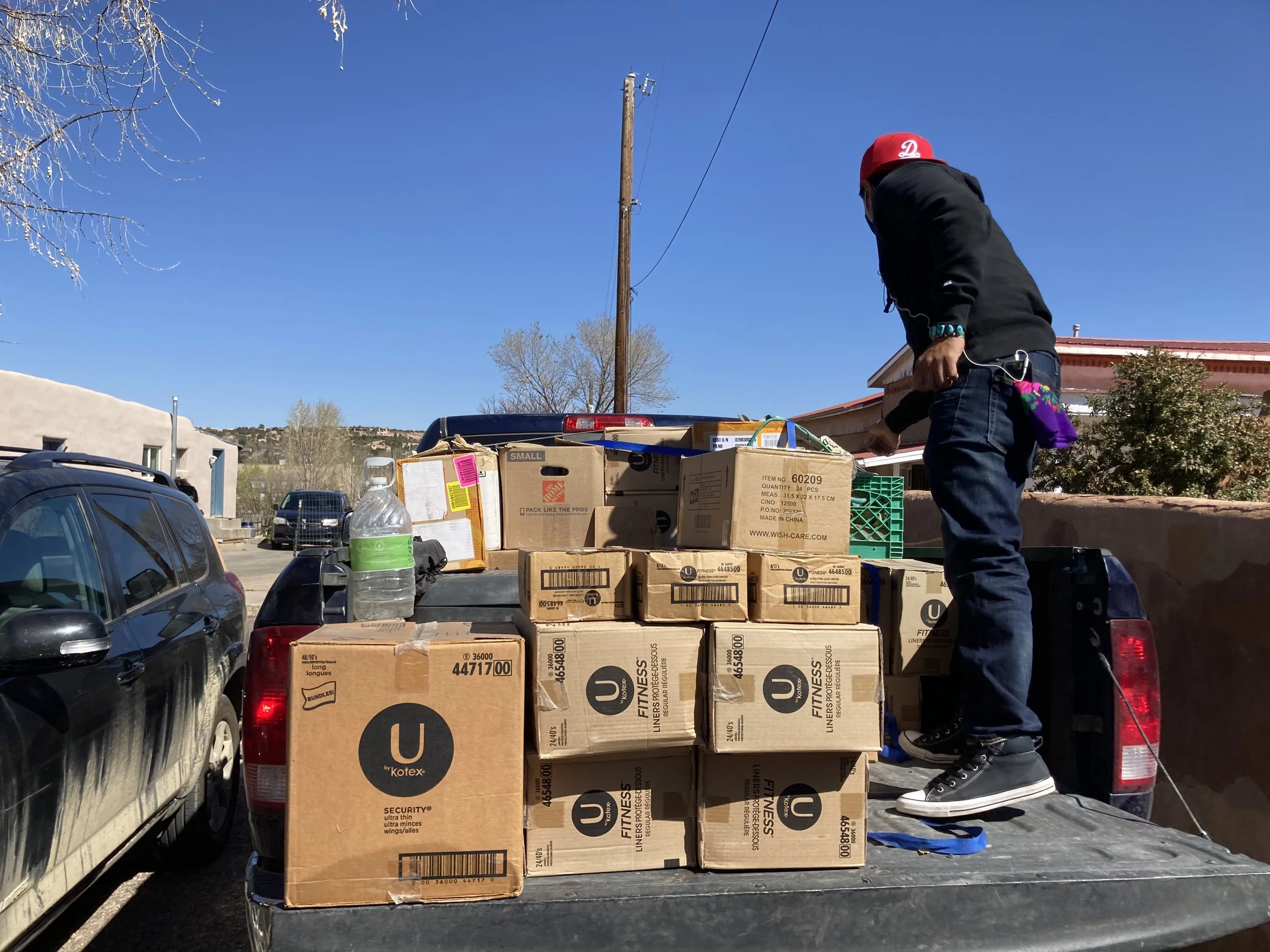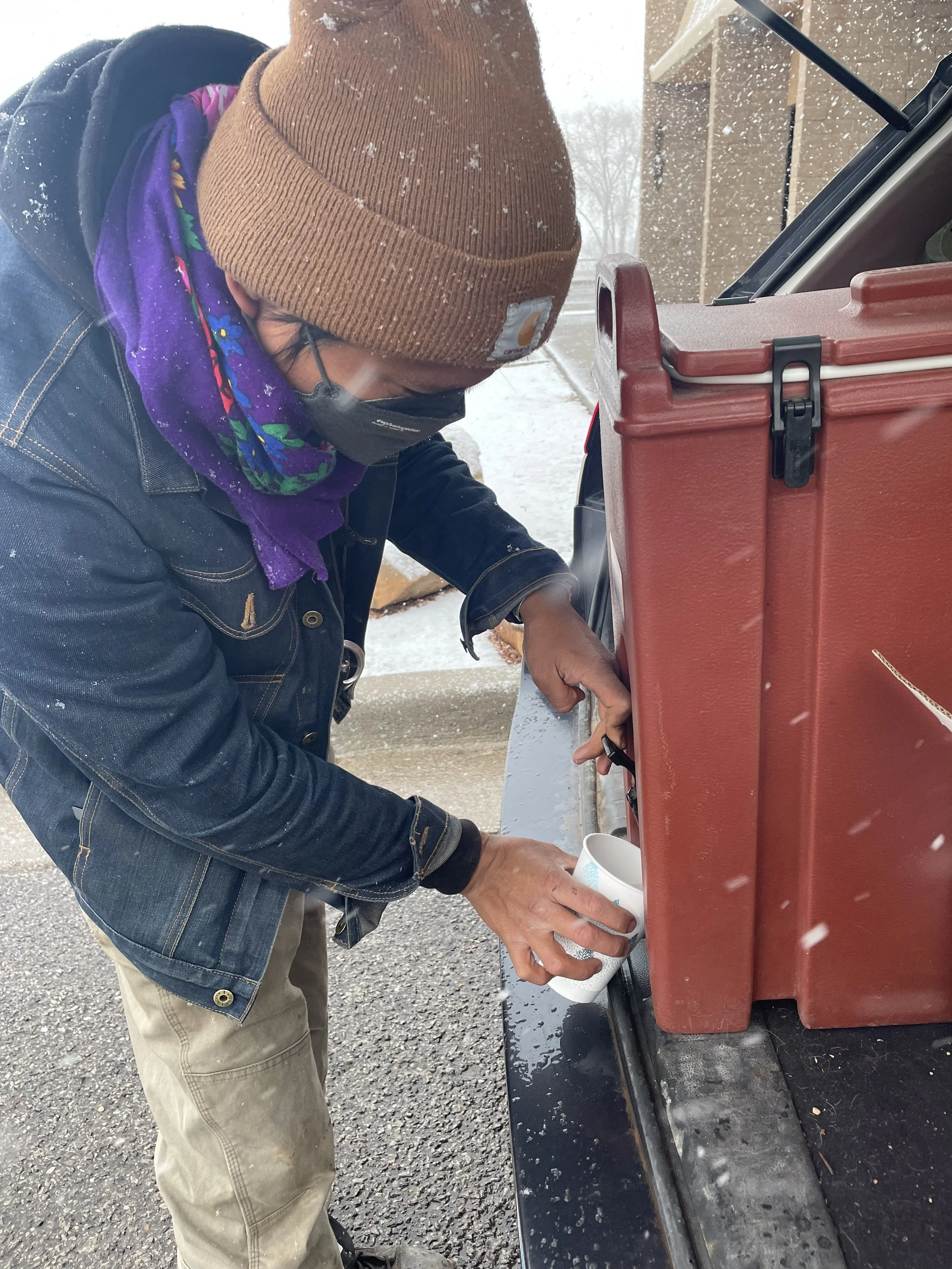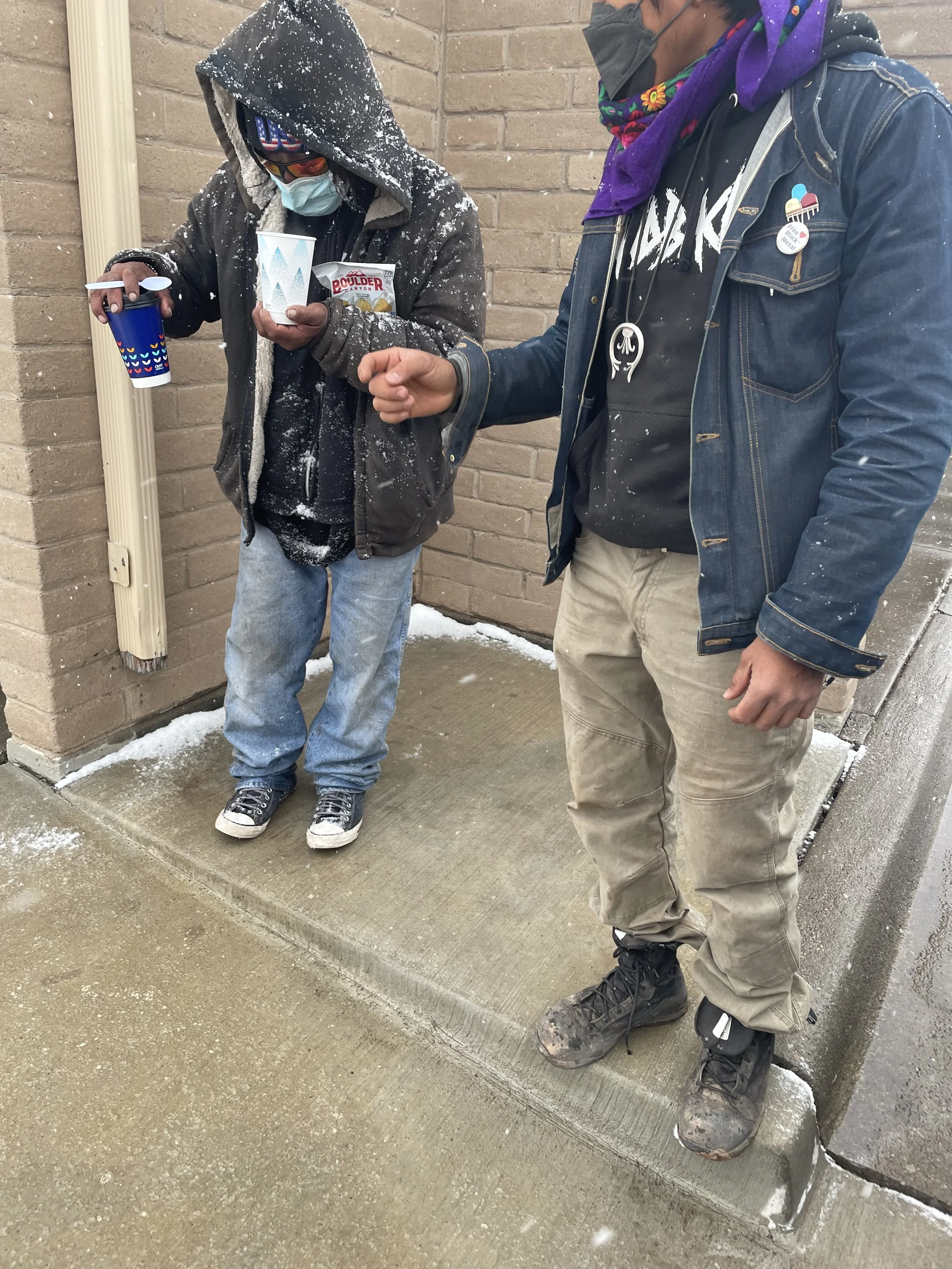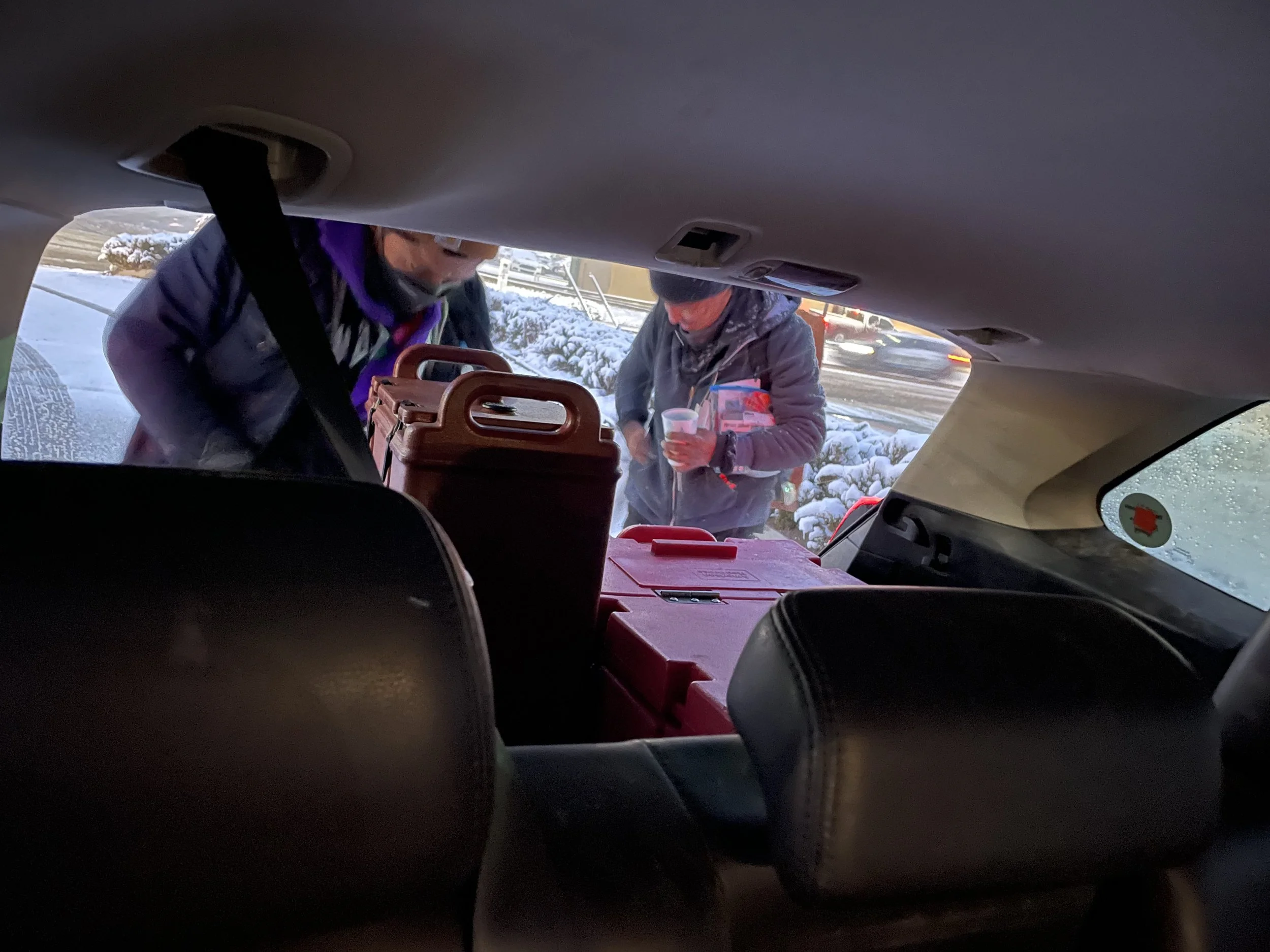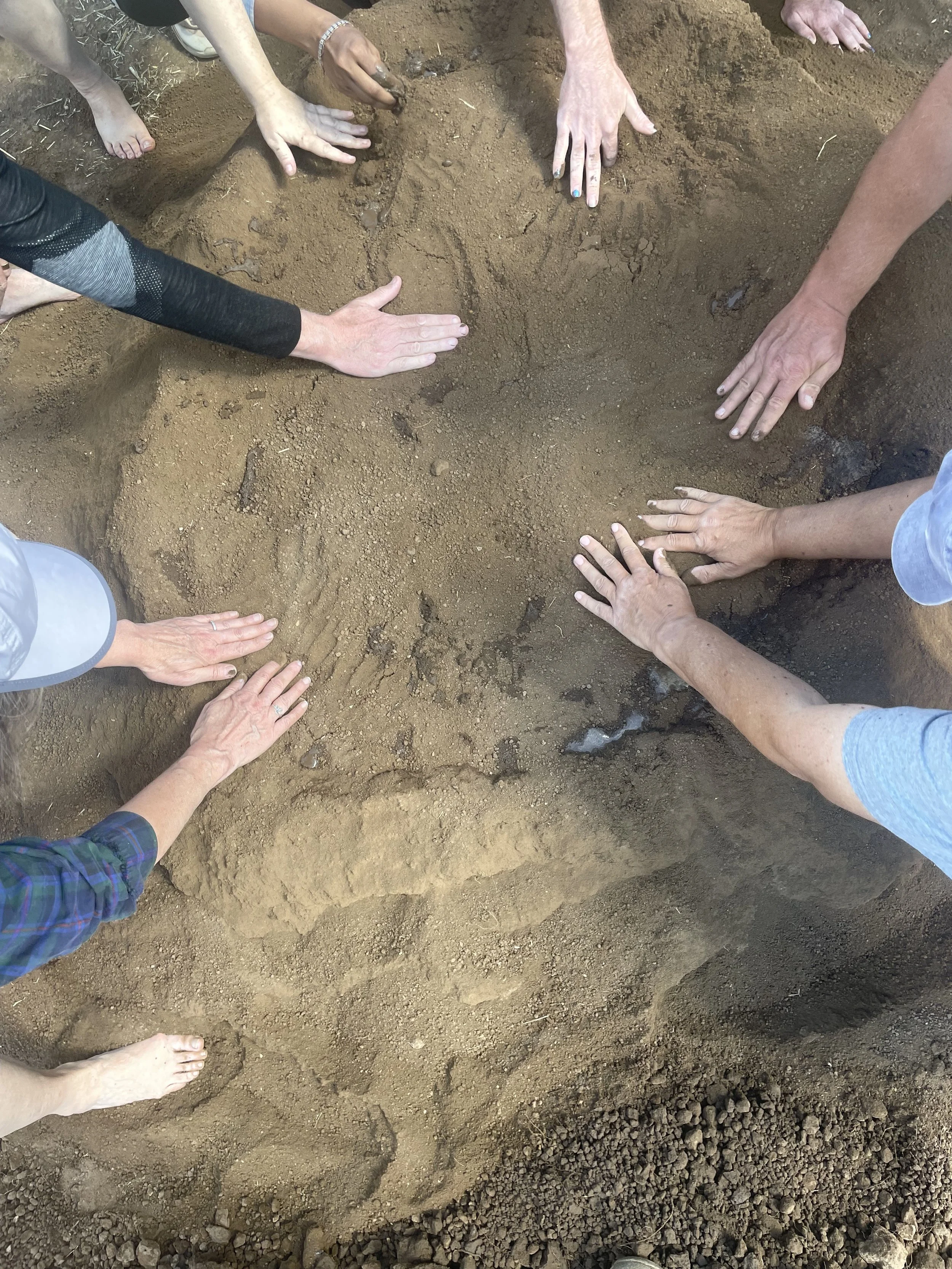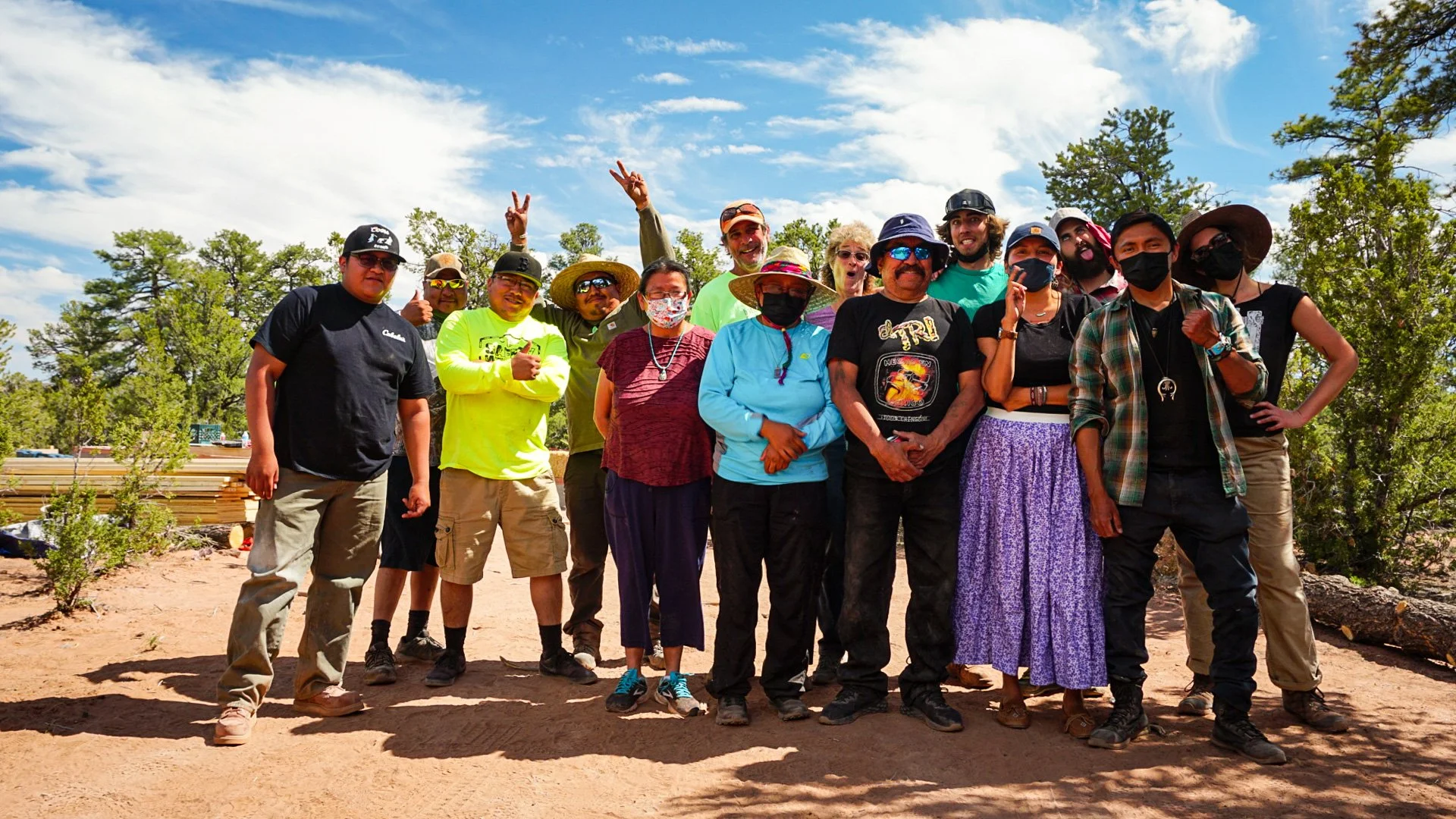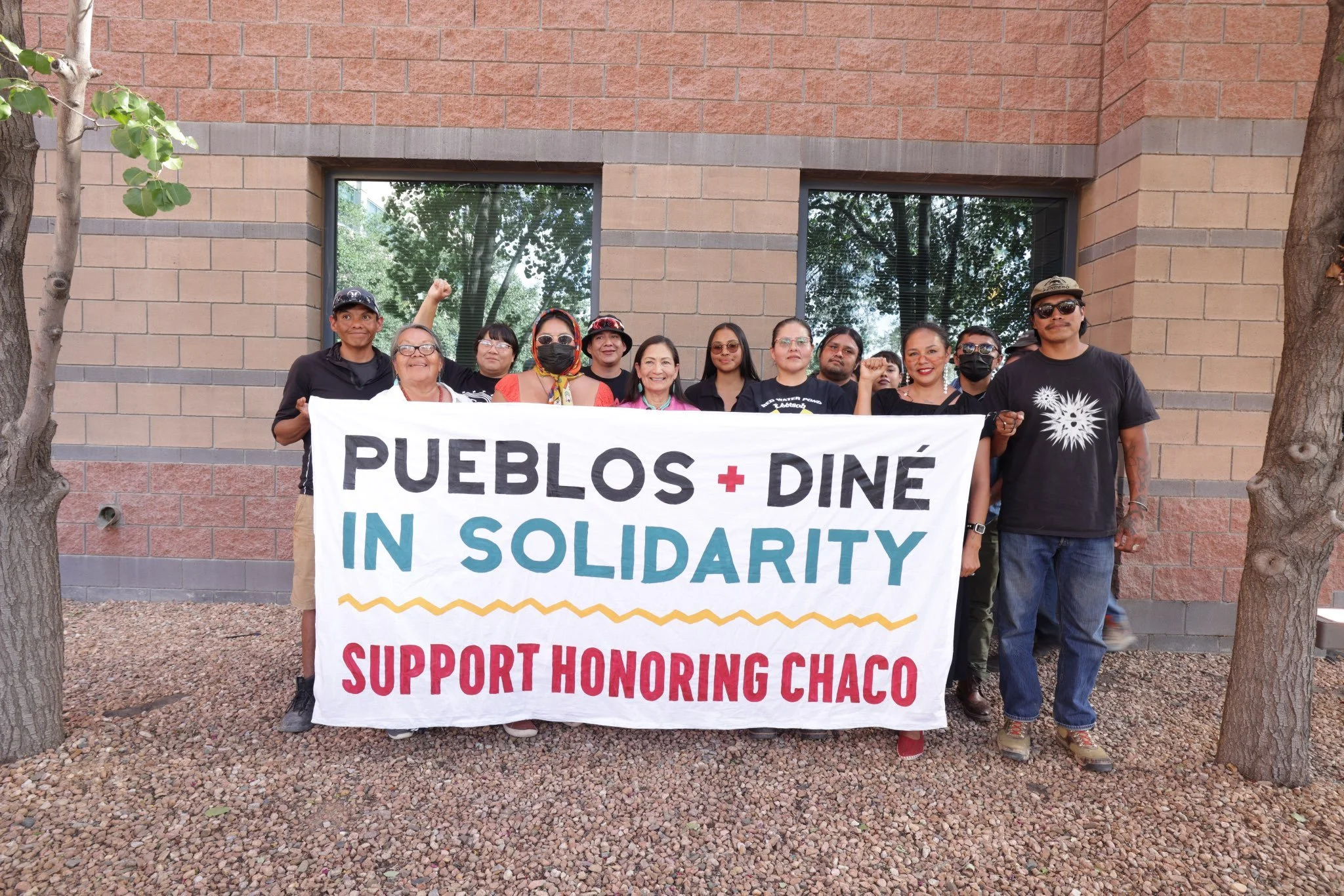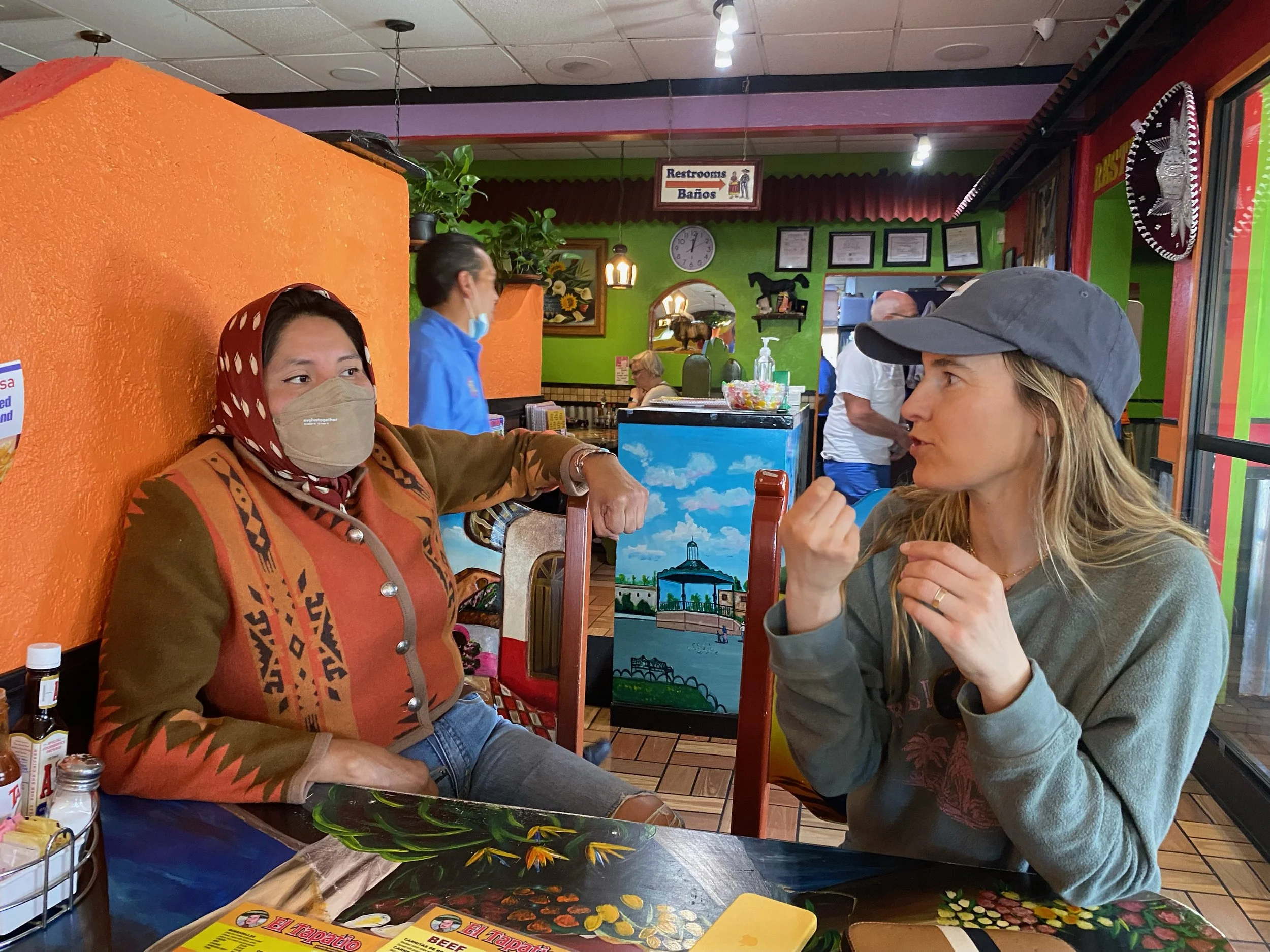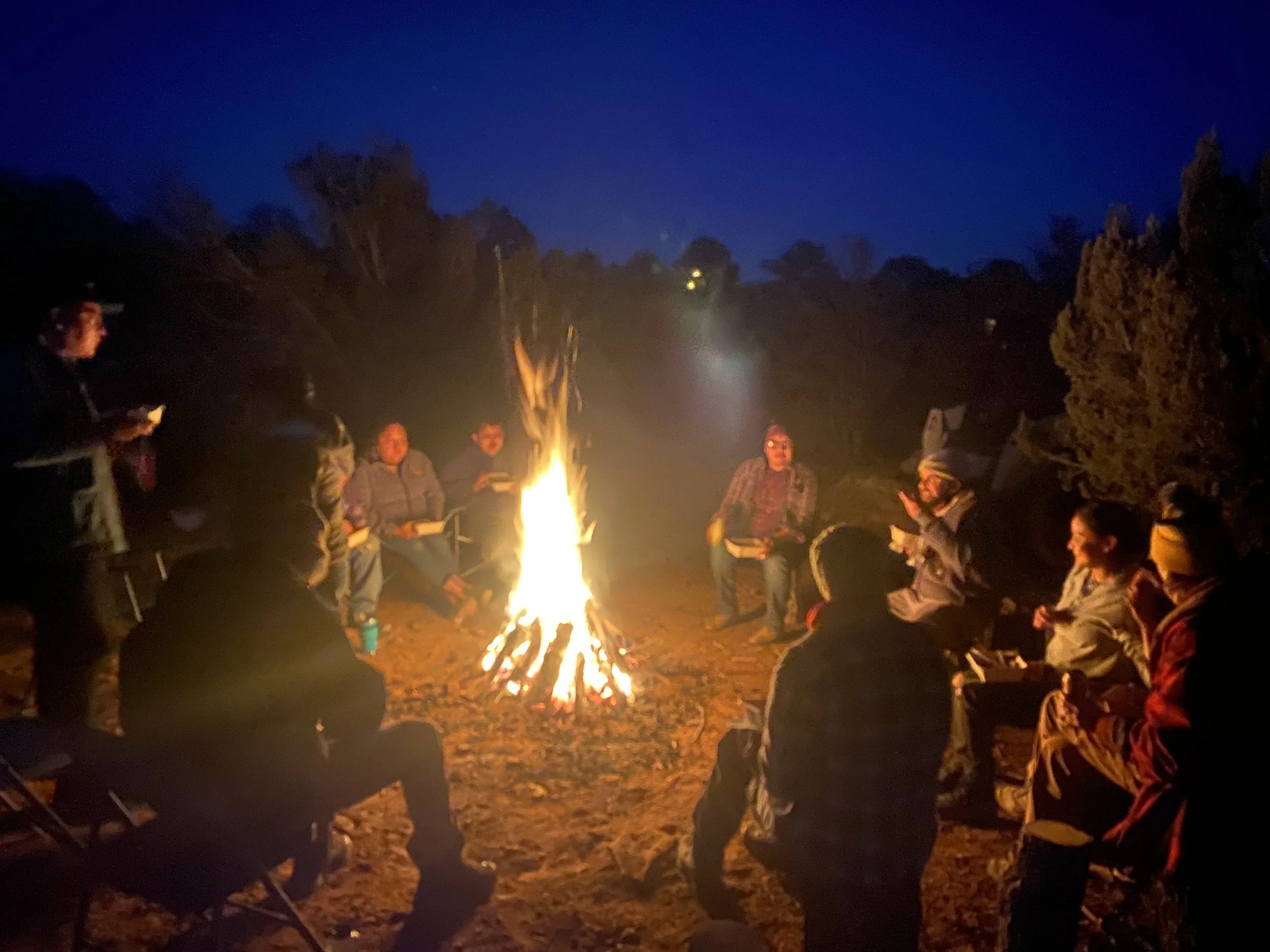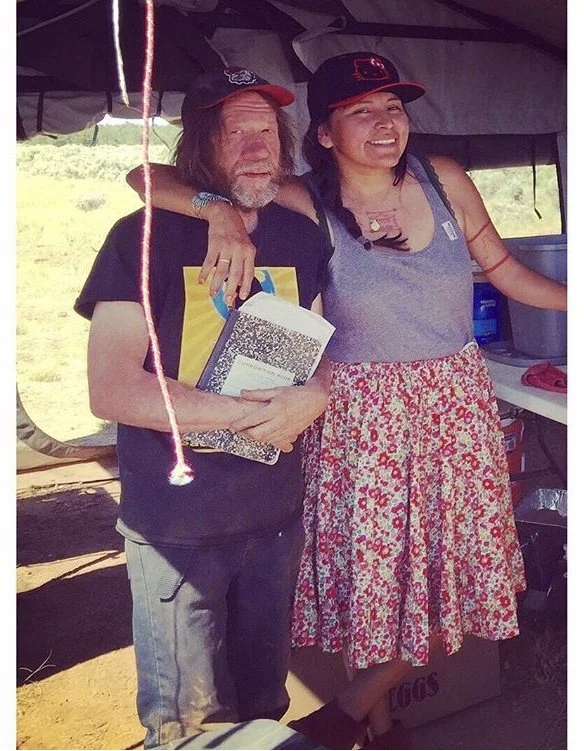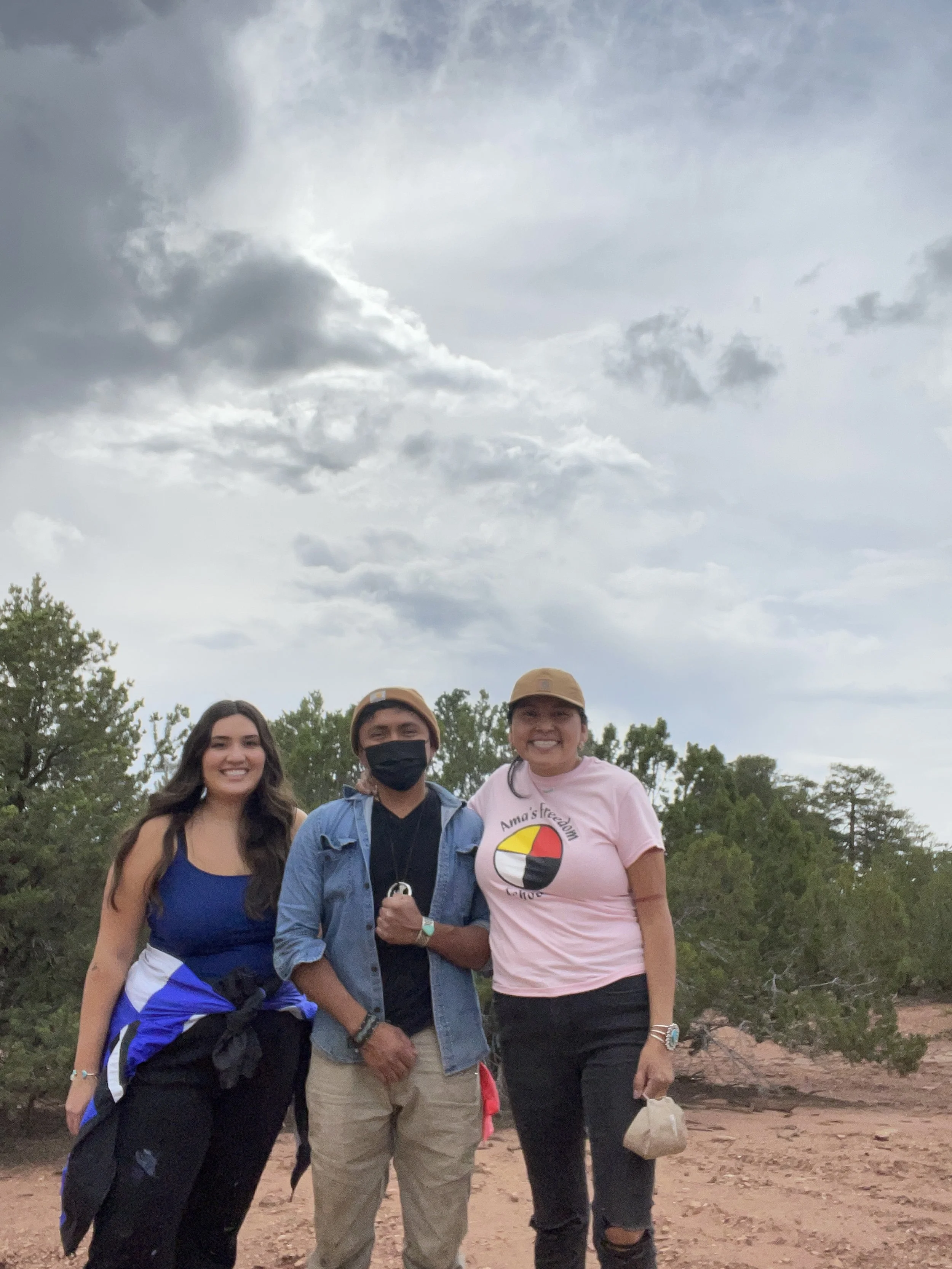Love on the Land
It all begins with an idea.
Being Diné means living with and deeply caring for your homeland. It is vital for our healing and liberation to actively reconnect with the land, its abundant life, and to restore our essential survival skills that have been passed down through generations. We return to our roots and traditions, just as our ancestors did, who relied heavily on and respected the land that sustained them. Indigenous mutual aid involves not only sharing valuable resources but also redistributing knowledge and power to help revive our ancestral ways and heal our communities in meaningful ways.
We rely on the land that has supported us for thousands of years. Our ancestors understood that if we care for the land, it will care for us. They created sacred roles to nurture the land. We strive to follow their teachings by caring for the land and the life it supports. Mutual aid with the land means reconnecting and being part of its natural systems. We focus on healing the land rather than controlling it. Our local efforts include cleaning up illegal landfills, detoxifying areas with native plants, restoring watersheds, reducing erosion, planting native plants, creating natural water catchments, and building healing spaces with natural materials. This mutual aid involves learning about the abundance the land offers. Through this ancestral stewardship, we recognize our duty to protect the land and its life for future generations.
Building Society
It all begins with an idea.
Over the past two years, we have been diligently and thoughtfully building a 1200 square foot community kitchen constructed mostly out of strawbales. We have come a long way in this beautiful and meaningful project—it all began with the important work of cleaning up the illegal trash dumps that had unfortunately accumulated since the time settler invaded our homeland in the 1800s, along with planting various native plants to help detoxify the surrounding environment. We also focused on making the access road more drivable to facilitate transportation to the build site. In addition, we undertook the removal of dead trees and implemented measures to restore the surrounding watersheds effectively. This was followed by constructing a barn specifically designed to hold the 500 strawbales, making the loading and unloading process much more manageable. After that came the actual building phase, which started with laying down the foundation and framing up the structure. We later hosted a week-long strawbale building workshop, where individuals from the community came together to learn, lend their hands and skills in helping to install the strawbales. Currently, we are in the process of closing up the structure by installing windows and doors as well as extending the size of the restroom to better accommodate everyone. With future plans in mind, we are actively preparing for a lime plastering workshop scheduled for the spring of 2025, alongside another community strawbale building workshop, during which we will be constructing a modern ancestral ceremonial home.
The straw bale community kitchen build is the beginning of a series of workshops on natural building techniques, such as straw, adobe, hempcrete, and earth bags we hope to bring across the reservation. This project aims to foster regenerative activities to support organizers and enhance community resilience through infrastructure development, connecting our Diné relatives with their ancestral ways. The pilot homestead initiative aspires to strengthen communities and traditional practices, envisioning future community hubs as decolonial learning centers that reinforce the Navajo Nation. We aim to empower and inspire our people to come home and build together modern ancestral homes for each other and those in need of housing using different natural building techniques; reestablishing building societies just as our ancestors did,
These homesteads will function as classrooms, teaching essential skills within the community. We aim to enhance access to decolonial knowledge, promoting engagement with ancestral practices through land-based education, ceremonies, songs, and elder interactions. These efforts will reinvest time and energy into the community, improving health and equity.
A Diné Homestead will serve as a model for sustainable regeneration through the implementation of sustainable building practices, comprehensive land restoration efforts, effective water harvesting techniques, and the integration of solar energy solutions. By conducting a series of informative workshops and skill shares, we will facilitate the sharing of valuable knowledge, ultimately making our community stronger, more cohesive, and more resilient against the ongoing challenges we face today.
Our vision is to establish inclusive community spaces that encourage collaboration, creativity, and the pursuit of the liberation of our homeland. By placing a strong emphasis on decolonization, sustainability, and the preservation of traditional dwellings, we can meaningfully reconnect with Diné teachings and seasonal cycles. Through this approach, we aim to ensure that the wisdom and ancestral knowledge of our communities effectively guide our future actions and decisions.
Mutual Aid
It all begins with an idea.
We are an autonomous indigenous collective that is deeply rooted in the principles of ancestral mutual aid. The concept of mutual aid—collective care and support—is certainly not a new notion to our people. In the spirit of our ancestors, we continuously organize in ways that ensure the health and well-being of Nihi K’é (all our relations) through a framework that respects non-hierarchy and is firmly based on our Diné cultural knowledge systems. The philosophy of mutual aid has always been woven into our culture, continuously reminding us to take care of and look out for the health and well being of one another and the land that sustains us and the non-human beings that we share the land with. This important value is embedded in our songs, prayers, and stories, echoing through generations. Historically, our ancestors cared for each other during periods when various sicknesses and challenges emerged, including those brought by settlers long before the onset of COVID-19. Today, we walk in their moccasins, honoring their legacy as we step up to love, nurture, pray for, and protect our people and land in the present moment. It is fundamentally about how we care for the land and the life that thrives upon it, as well as the ways we support one another with K'é—love, kindness, food, shelter, and prayer. It embodies a sense of respect and responsibility that we carry forward.
Over the years, we have traveled, supported, and cooked for various events, collaborating for the well-being of Indigenous communities and the defense of sacred land and water. From the Nihigaal bee lina walk and the Love Water Not Oil Horse Ride on the White Earth Reservation to the Salmon Run in Winnemem Wintu territory, each experience has deepened our connection. We participated in events with Pii Paash relatives, various Indigenous resistance camps, and actions such as the Unist'ot'ten Camp, Protect Oak Flat movement, Standing Rock Resistance, Lalu Island stand against LNG Pipeline..ect. We have also supported elders in Black Mesa and visited and support Zapatista comrades in Chiapas, engaging in battles against fracking, uranium, and coal mining in Diné and Ute territory in Utah. Our work often places us on the front lines against land desecration, government repression, and resource colonization. We unite our unique skills and perspectives as Diné and Indigenous peoples, fostering solidarity, mutual aid, accountability, and kinship amongst our diverse communities and nations.
Our mutual aid collective has been on the ground during the start of Covid19, doing mutual aid relief on our homeland Diné Bikéyah (Four Corners Region). Through out this time our collective delivered care packages filled with food, water, Personal Protection Equipment , cleaning supplies, menstrual products, hygiene, herbal remedies and firewood (for heat & cooking) out to over 7,000 households in the reservation that are elders, immunocompromised folxs, families with no income, and unsheltered relatives in the streets ; in addition, we have also provided water barrels for households with no running water, and livestock feed (Hay & grain) for elders and families in need who have cattle, sheep, chickens and horses.
In the past two years, we have dedicated our efforts to establishing a thriving community kitchen aimed at fostering mutual aid organizing within our homeland. Our ongoing initiatives encompass a range of activities, including gathering and hauling firewood to support elders and disabled individuals, distributing vital sexual health supplies, providing essential kitchen support for various ceremonies, hauling water tanks to local farmers in need, and assisting unsheltered individuals by offering food, clothing, and other essential items for their daily lives. Additionally, we actively organize mutual aid with the land, with a strong focus on restoration initiatives and land-based education aimed at promoting sustainability and community involvement.
Please join us, walk with us, support truly decolonial work in the true spirit of solidarity & ceremony.
''We are nothing if we walk alone; we are everything when we walk together in step with other dignified feet'' - EZLN
Our Partners
It all begins with an idea.
Thank you to all the individuals who have contributed their time, effort, and support to our initiatives. Your kindness and dedication have made a significant difference, and we truly appreciate everything you do.
4Kinship, Aaron El Sabrout, Ayden Clytus, Andrea Preston, Andrew Morisson, Bailey Steele, Brad Hanson, Bellemont Pinger, Bianca Spoci-Belnap, Bob and Sharon Alei, Bethany Yellowtail, Climate Change Leadership Institute, Charolette Grubb, Chloe James, Charleston Billie, Darlene Benally, David Samuel Orr Fund for the Earth, Debra White Plume, Dinè Centered Research and Evaluation, Durango Dirty Hands Collective, David & Terra Hite, Dwayne Lewis, Daniel Tullie, Earth Care International, Earthville Institute, Endaoment, Elvis Deschenny, Faherty Brand, Felix Earle, Fredrick Begay, Gretchen Groenke, Gloria Emerson, Hazel James Tohe, Initiative for Energy Justice, In the Family Way, Itality Plant Based Foods, Jaiden Willeto, Jennifer Kreisberg, Justinian Benally, Juan Carlos, James & Mary Reents, Janene Yazzie, Jeff Willeto, Kathy Sanchez, Kellog, Kerry Docherty, Klee Benally, Kyle Larry, Larry Emerson, Marco Arviso, Marilyn Joe, Marquel Musgrave, Makiko Ellis, Michael Bowersox, Milton Chee, Nate Wax, Native American Recovery Fund Zone Grant, NARFZG Leadership Network, NDN Collective, Noeli Villa, New Mexico Foundation, Mccune Foundation, Organic Forms Design, Olowan Martinez, Raymond Joe, Ruby Lynch, STRAWBALE.com, SURJ-Santa Fe Chapter, Suzanne Joy Teune, Tate Todea, Talia London, Tewa Women United, T’Sayain/ Circle of Grandmothers & Wisdomkeepers, Tides-We Lead Fund, Theresa Watson, Thomas Johnston, TJ Lewis, Ty Blackwater, Ty Lewis, United Frontline Table, Vincent Arviso, Vance Blackfox
We truly couldn’t and wouldn’t be able to achieve this without your incredible support and guidance! <3

